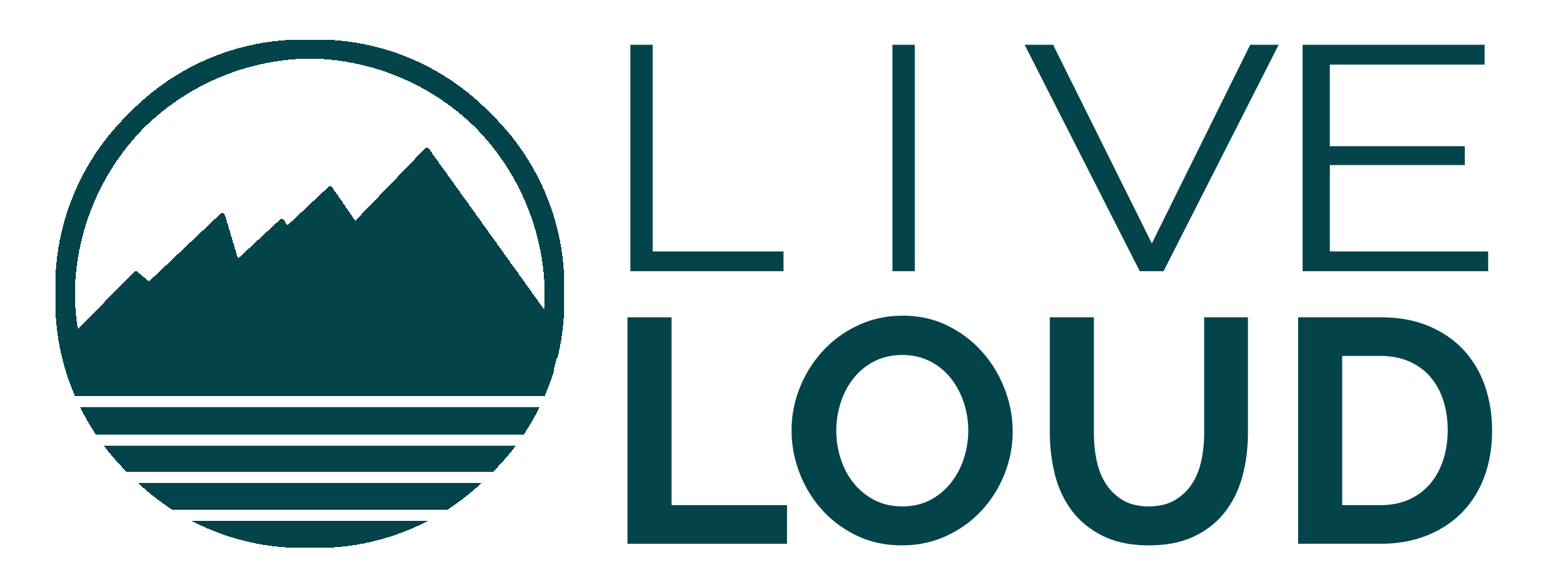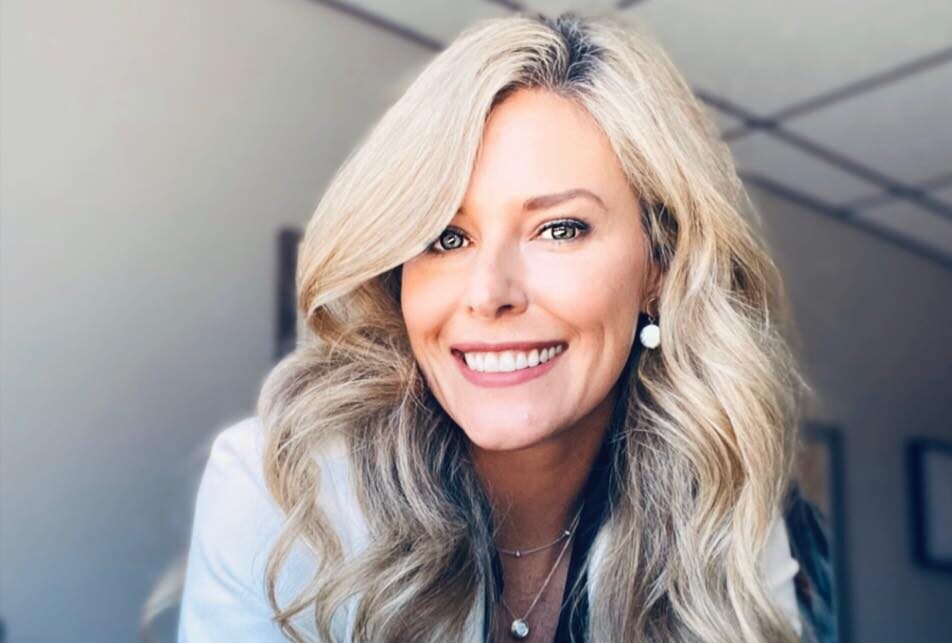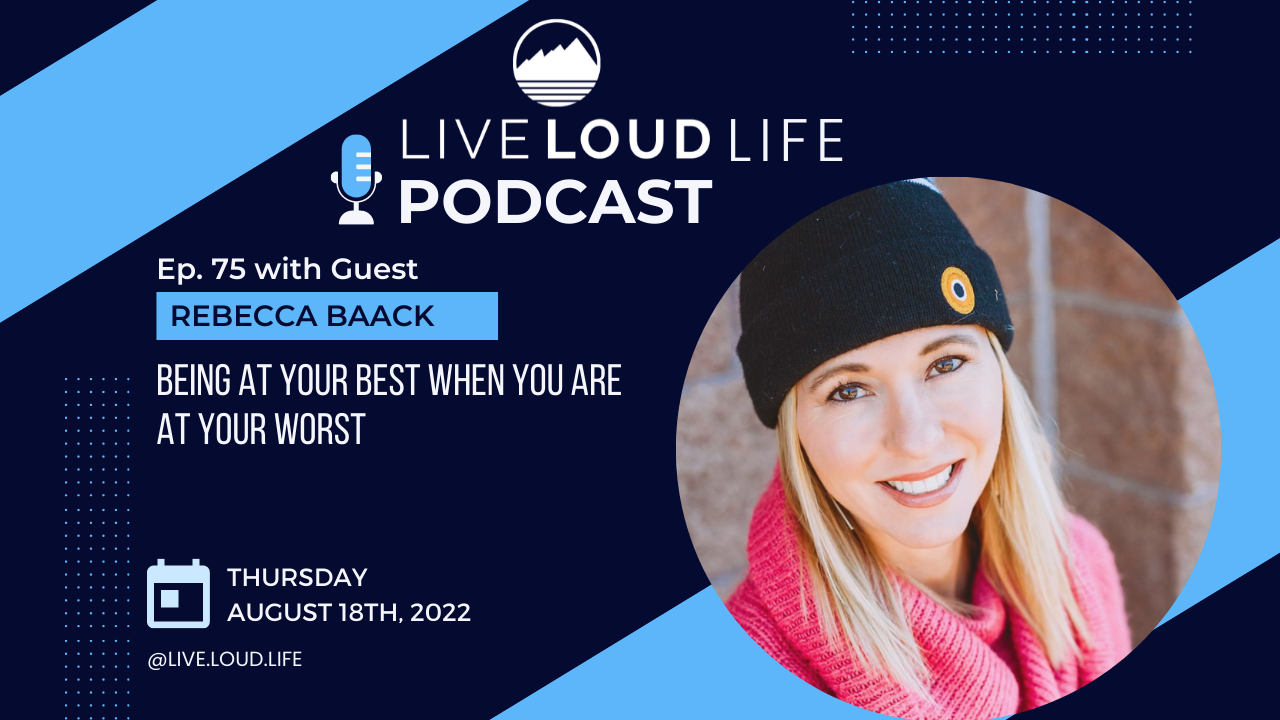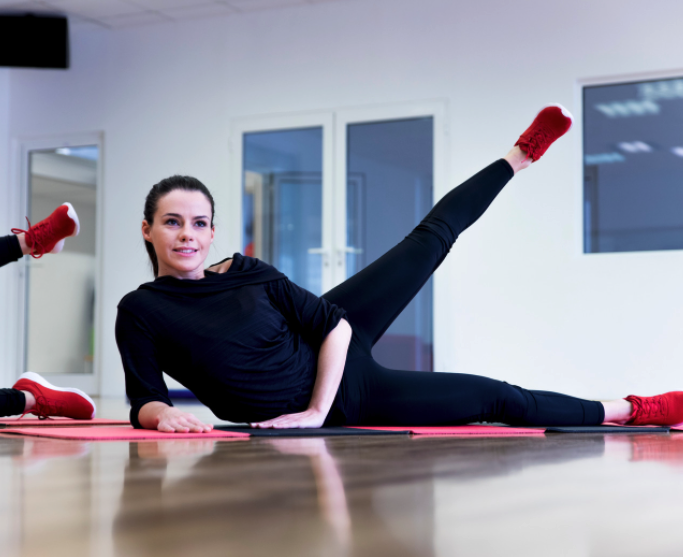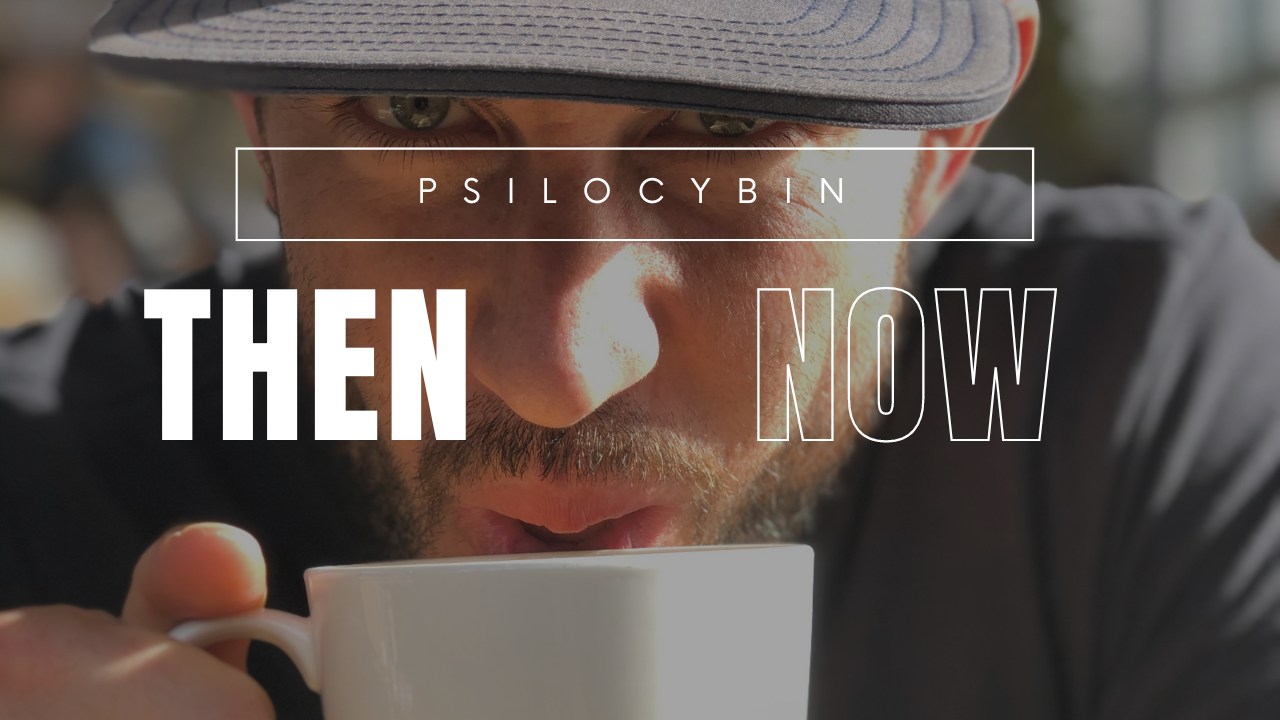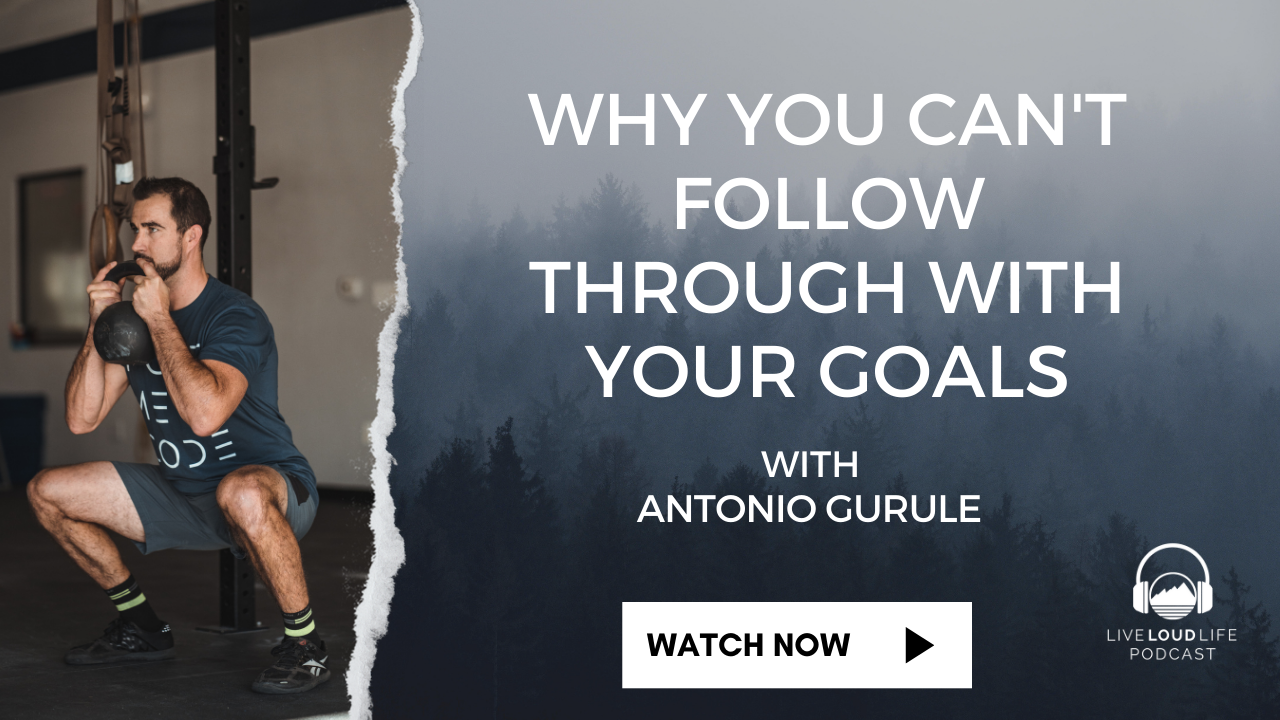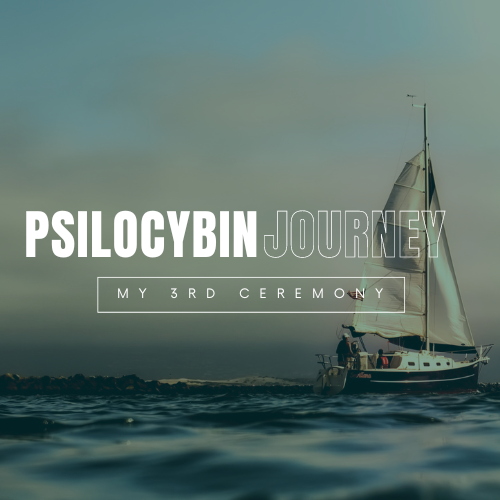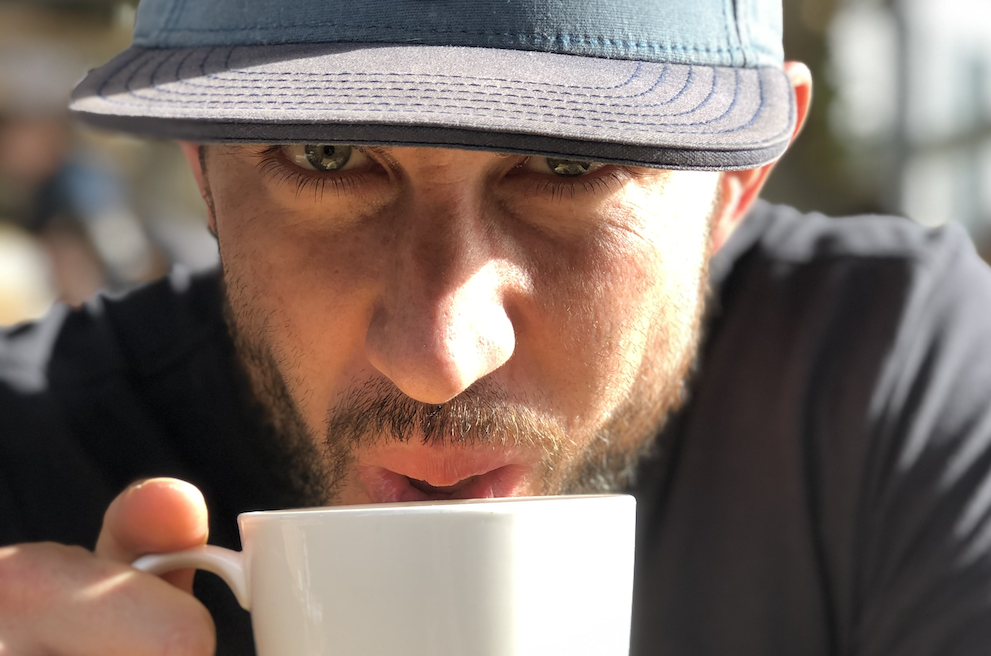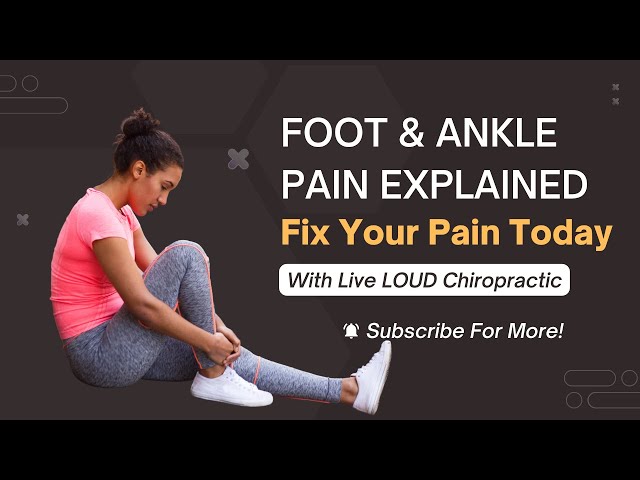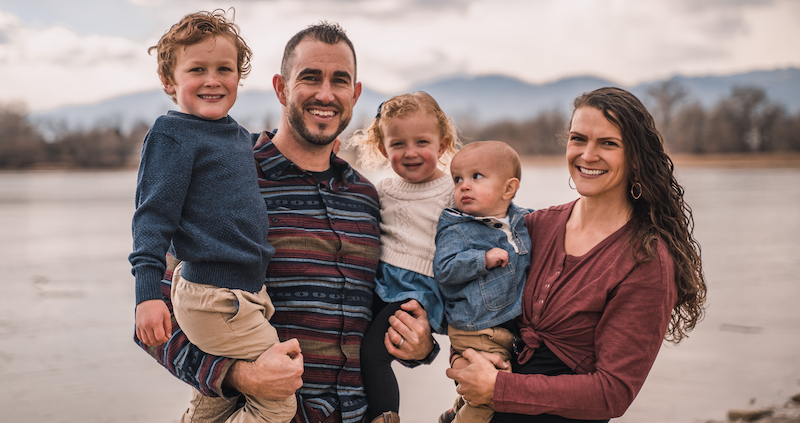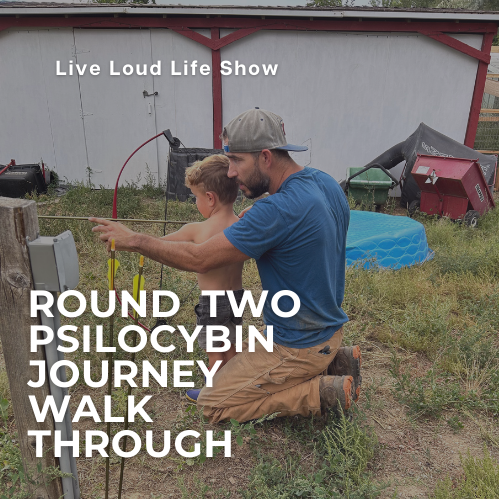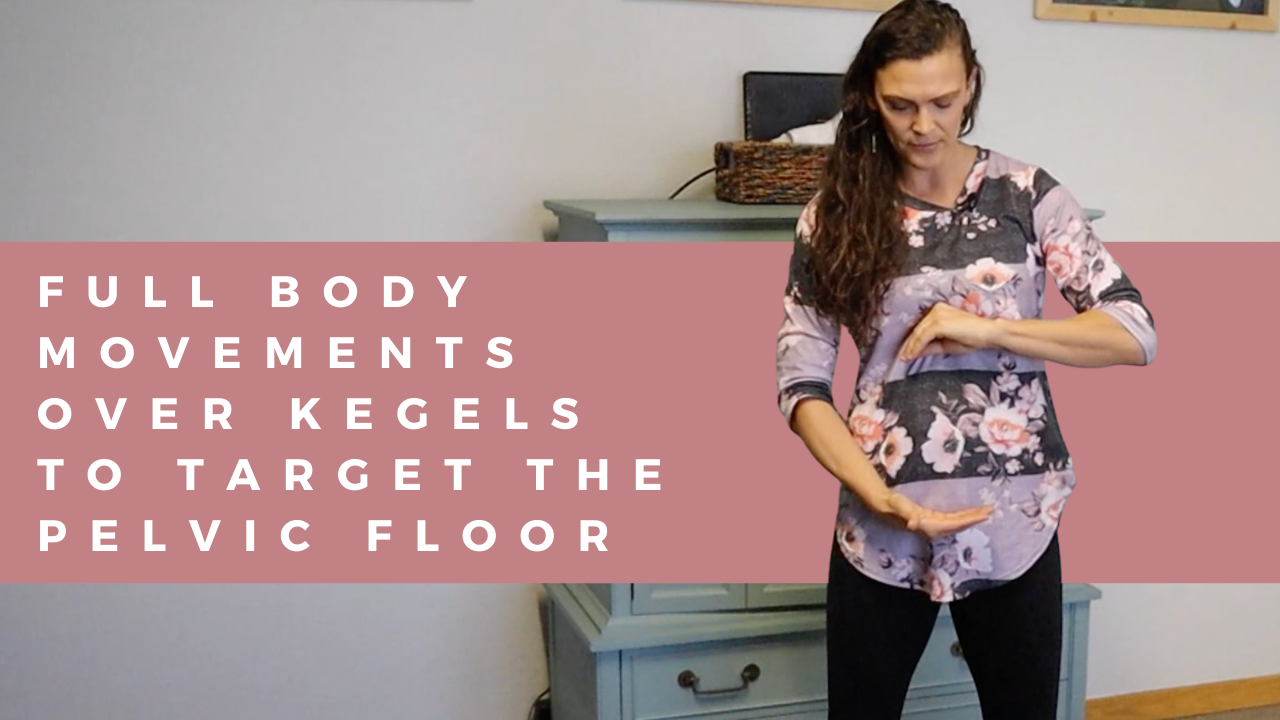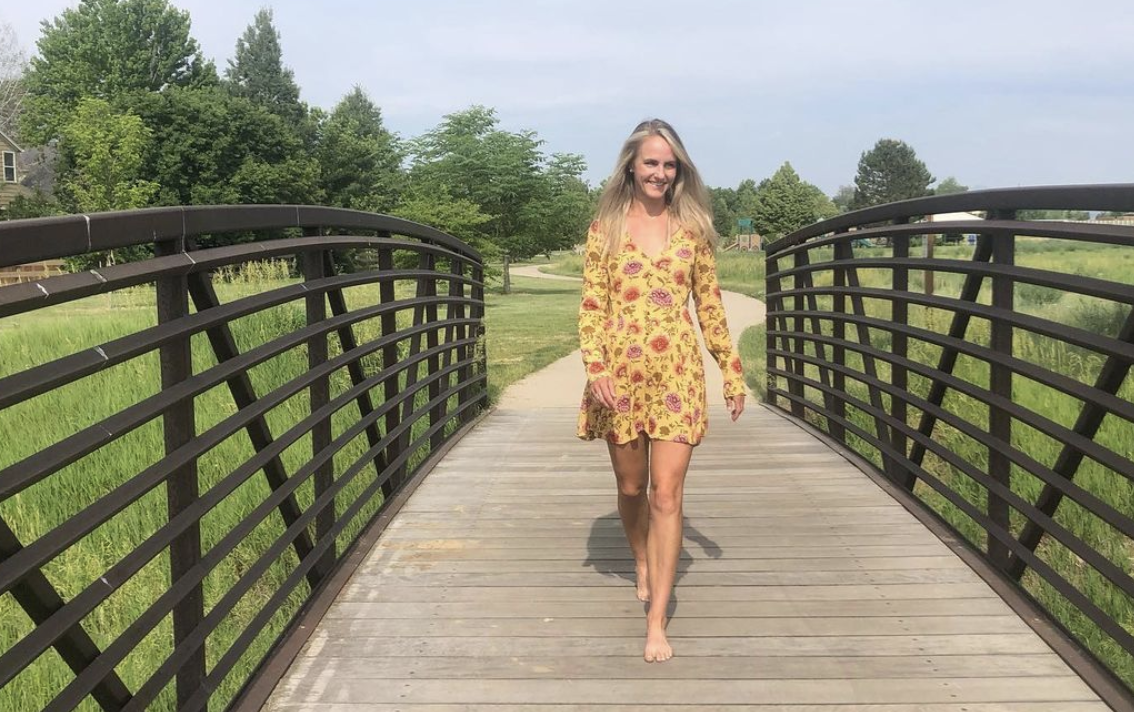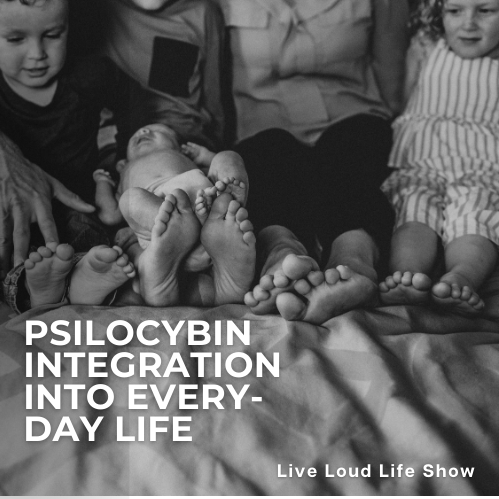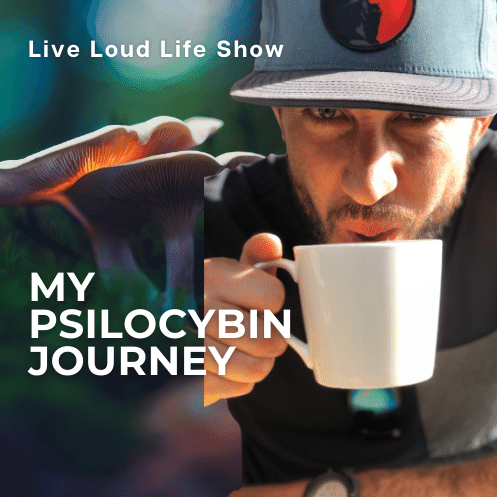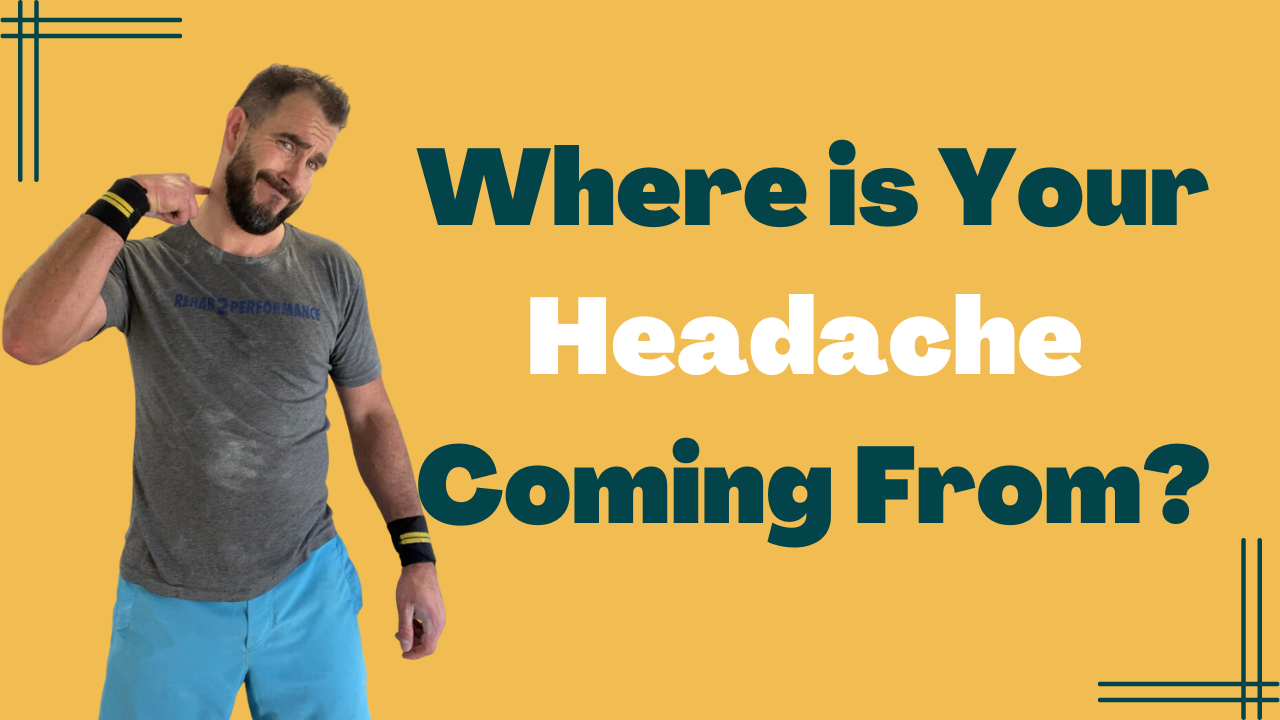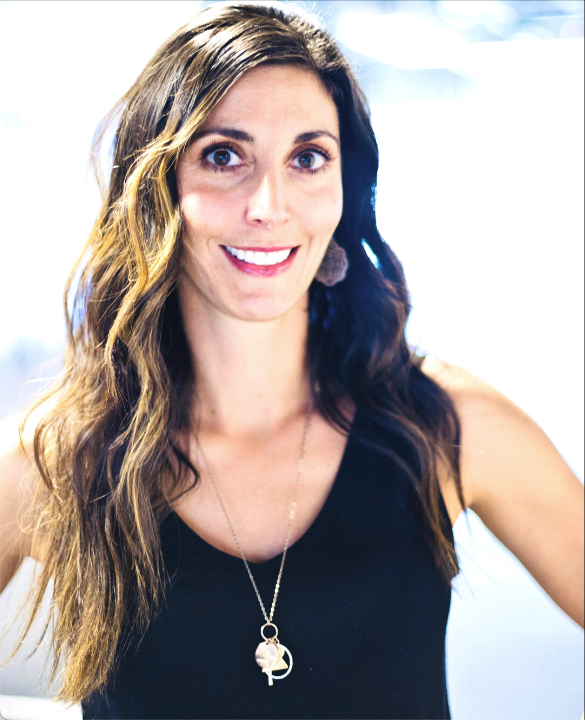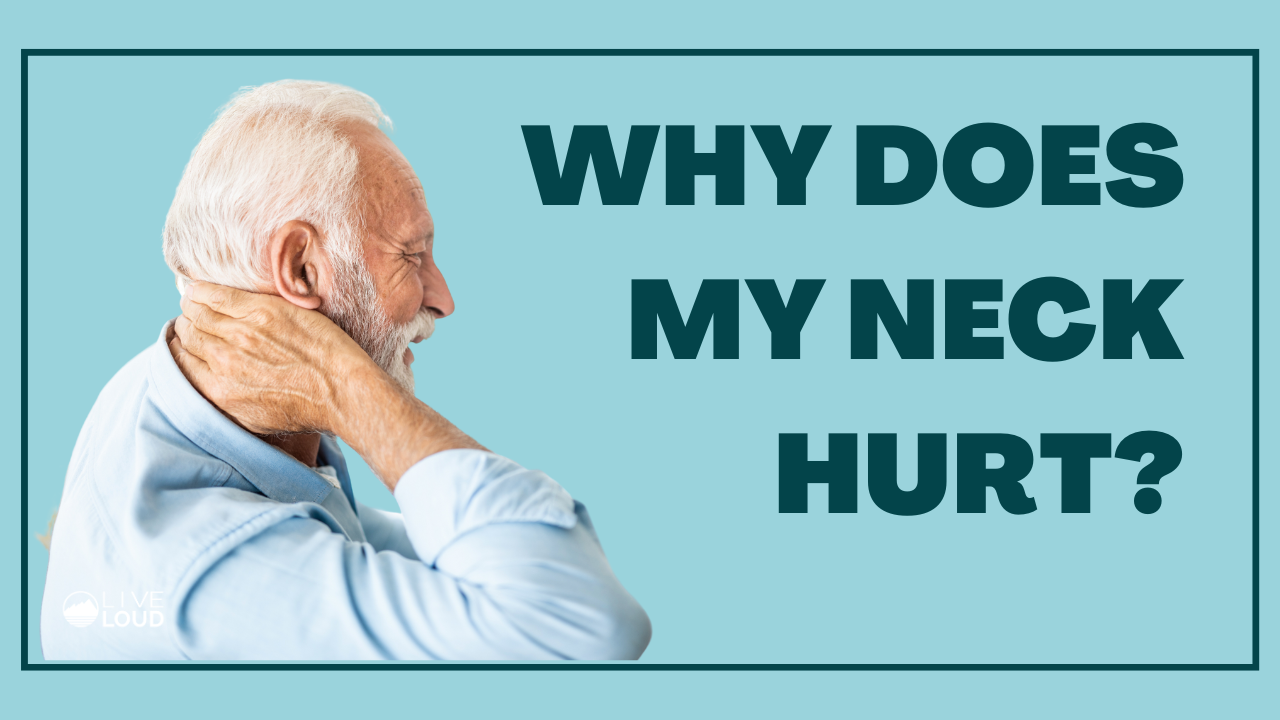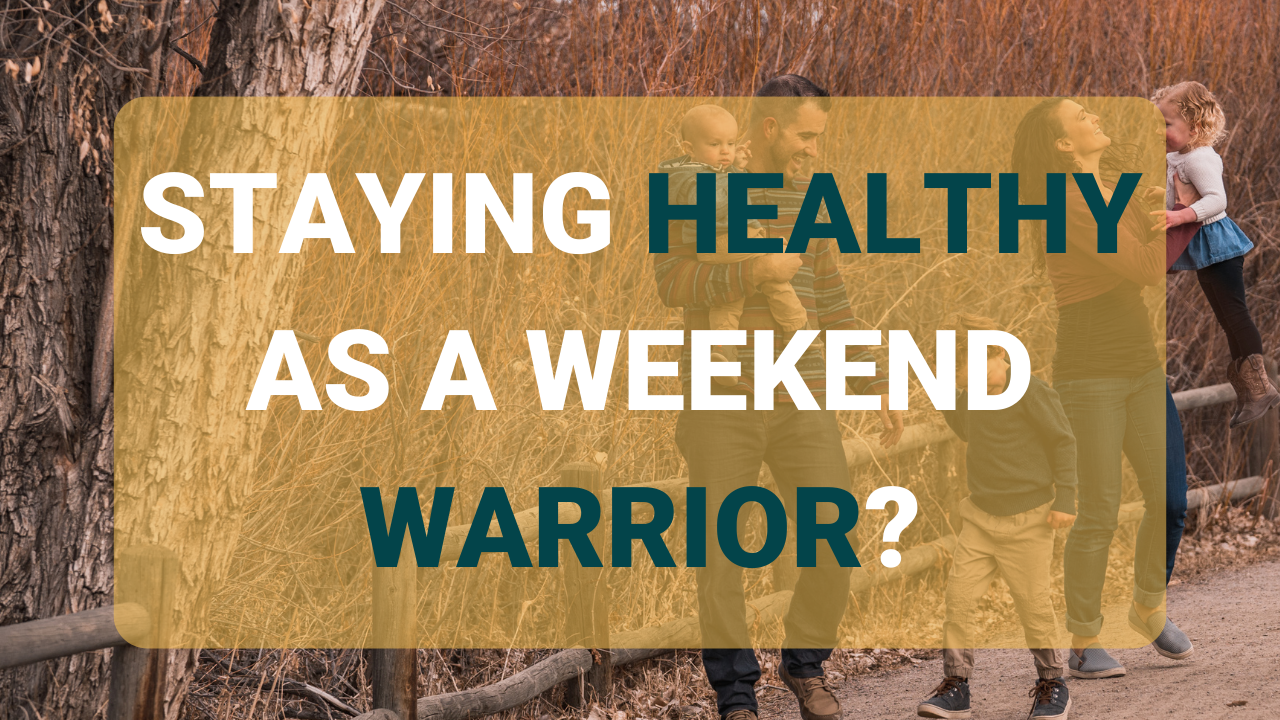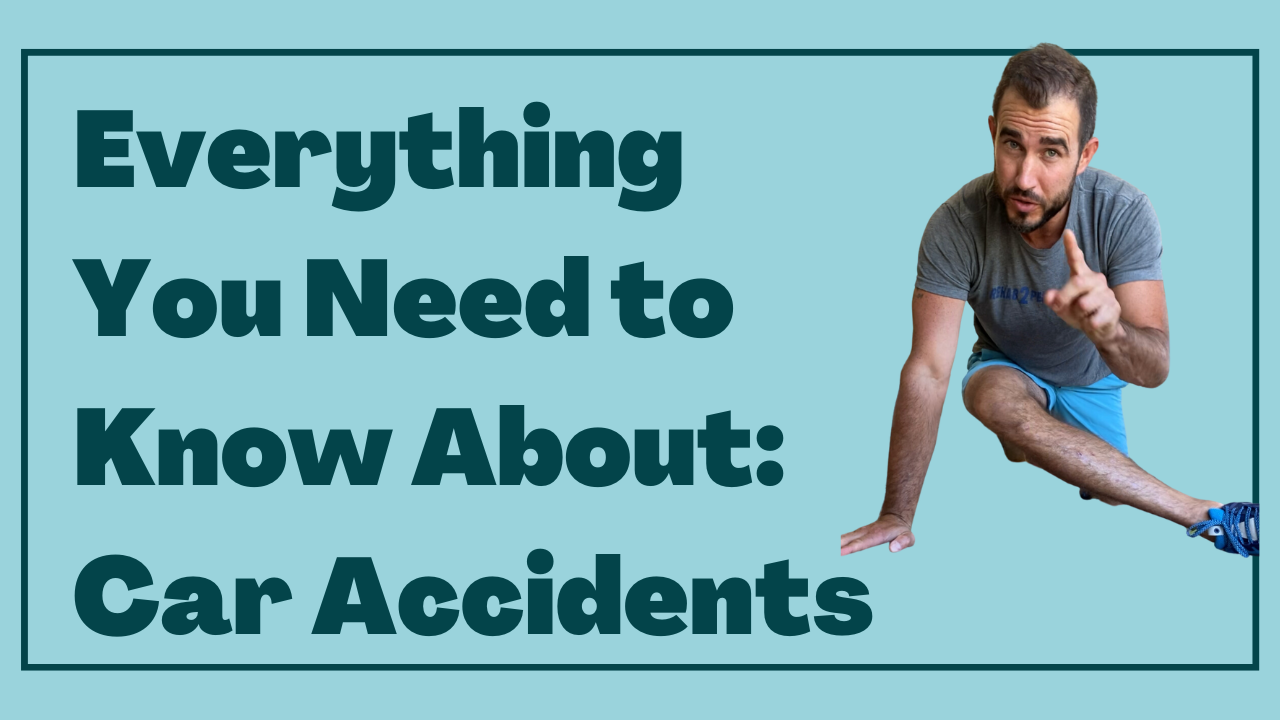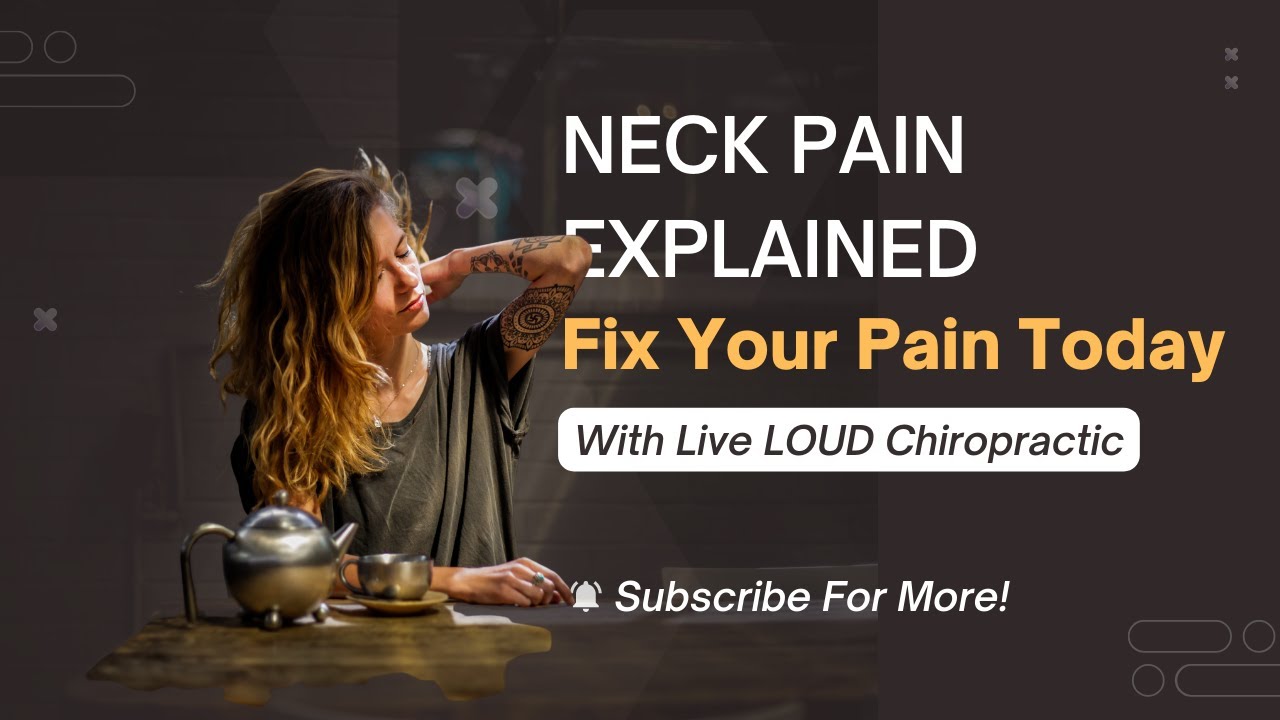Letting The Old Self Die To Grow
Live LOUD Life Show
Lafayette Colorado
Letting The Old Self Die To Grow Through Psychedelic Therapy
With Dr. Antonio Gurule
- Managing anxiety through psychedelic therapy. 0:17
- Antonio shares his experience with psychedelic therapy for anxiety, revealing a gradual build-up of stress symptoms.
- Personal growth, business, and family priorities. 1:51
- Anthony Gurule struggles with unrealistic expectations and a lack of focus in his business, leading to stress and inaction.
- Gurule seeks a business coach to help him prioritize and restructure his efforts to avoid falling back into the same patterns of inaction.
- Anthony Gurule struggles with prioritization and balance in his life, particularly as a father and business owner.
- He seeks outside help through therapy and coaching to make ultimate changes in his life.
- Personal growth and psychedelic-assisted therapy. 6:06
- Anthony Gurule reflects on his personal growth journey, recognizing the need to balance work and rest to avoid burnout and prioritize self-care.
- Gurule aims to practice gratitude and mindfulness to fulfill his potential and avoid leaving opportunities on the table.
- Anthony Gurule discusses his experience with psilocybin mushrooms, including the dose and the altered state of consciousness it produced.
- Gurule reflects on the journey’s impact, including the interpretation of visuals and information that came to him during the experience.
- Personal growth and letting go of old habits. 11:15
- Anthony Gurule describes a metaphorical experience of being shot in a game and dying, only to be revived and shot again, symbolizing the need to let go of old patterns and habits to grow into a new person.
- Reflecting on the experience, Gurule recognizes the difficulty of letting go of old self, but acknowledges the importance of doing so for personal growth and transformation.
- Anthony Gurule shares his experience of feeling like he’s living the same day over and over again, laughing hysterically on Groundhog Day.
- Gurule reflects on the importance of laughter and finding joy in life, despite feeling sour or serious at times.
- Spirituality and personal growth through psychedelic medicine. 15:53
- Anthony Gurule reflects on Groundhog’s Day and realizes he has a choice to find beauty in everyday experiences, rather than feeling trapped in the same routine.
- He has a spiritual experience and learns to let go of negative thoughts and be more observant of the world around him.
- Anthony Gurule describes a spiritual experience where he felt connected to a central energy or God, feeling like he was everything and God was him.
- Gurule felt overwhelmed by the sheer power of this experience, worrying about losing his sense of self in the face of it.
- Life after death, priorities, and personal growth. 21:10
- Anthony Gurule reflects on life’s purpose and meaning, struggling with questions about death and his own identity as a helper.
- He acknowledges the importance of relationships and creating value for others, but grapples with balancing personal needs and professional responsibilities.
- Anthony Gurule reflects on his near-death experience and the insights he gained about his life and priorities.
- He recognizes the need to make changes in his thinking, acting, and prioritizing to create a different future.
- Personal growth, parenting, and overcoming fear of mistakes. 26:35
- Anthony Gurule shares his struggles with perception and taking action, encouraging others to prioritize personal growth and not be afraid to make mistakes.
- He emphasizes the importance of surrounding oneself with like-minded individuals and taking action to support each other’s growth.
- Anthony Gurule shares his journey of self-discovery and the importance of taking action despite mistakes.
- He emphasizes the need to be open to the unknown and to prioritize actions based on previous knowledge.
About Dr. Antonio Gurule
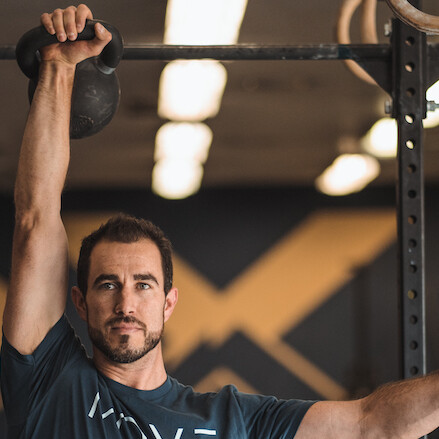
Background:
- Father
- Husband
- Doctor of Chiropractic
- Owner of Live LOUD
- Personal Trainer & Health Coach
Check Out Some of Our Other Blog Posts and Podcast Episodes
Hey guys, my name is Dr. Antonio, I’m your host of The Live Loud live podcast, we’re keeping this on currently, the podcast track, just so I can upload and post this. But this is a newer vlog series that we’re going to be doing, where I’m going to be re reliving sharing. I don’t even know all the words for that. But my journey, my adventure through this transition, I’m going through personal development and growth with psychedelic therapeutics, particularly right now, psilocybin journeys. And if you did not see the first episode of this series, right before this, go check that out. I read recount, my first psilocybin journey. And what had happened through what was my thoughts leading into it, kind of my experience, and then kind of on the other side, how I felt coming out of it. And now what I’m going to do is share an in between, I have a new journey coming up here in the next week, we can have to two weeks. And kind of what I’m doing in the interim, the integration part that we talked a little bit about. And then also just some of the thoughts and things I’m still struggling with and and what I’m what I’m kind of dealing with. And now I’m sharing this from this is this is this can be helpful to anyone but where I feel most quote unquote, I guess, drawn to just being that this is the life that I’m currently living is sharing this with other dads. Because everything that I was dealing with, almost most parents are so I do not want to separate that. I’m just saying dads for right now, you can be a mom, and you can feel this stuff too. So it’s not unanimous parenting, but for many of us in these relationships, you know, as a me as the dad, I feel more of the obligation, not even obligation assignment obligation, because it’s not that I don’t start something I don’t want to do, it’s just the responsibility of financially providing, right, putting a roof over our head, having warm meals, to eat healthy meals, to eat, having warm clothes, enough clothes to wear, right. And that is something all parents feel. But as just for me, I’m just saying, as a dad, I feel more of that responsibility. And I put more stress on myself for that so that they can live, you know, a wonderful life, we live in America. So obviously they will. We’re in the top, you know, whatever percentage in the world, let alone United States, but the sense of providing and giving them and wanting to give them anything and everything that they could possibly want. And so that just was what was weighing on me and for me, in my opinion is if you’re not growing, you’re dying. If you’re not moving forward, you’re moving backwards. But yet at the same time, when you look at physics, a body in motion stays in motion, when you look at it from the relative standpoint of the course of its lifetime, at any one given point, it might appear motionless, because of this constant trajectory. And what I am trying to learn is a stillness in practice in that we can obtain and be everything with all these resources, which are pretty much in this. And to any amount, when we are able to experience what’s what would otherwise appear, you know, describe as nothing, right? And it’s this being present of the every day of the person you’re having a conversation with, it’s to your spouse, to your kids, whatever that is. And sometimes it’s even to just yourself, and that’s the thing that I struggled the most is I just have so many of these autopilot programs set in my head that when something happens, I get this feeling and I just do this and usually it’s this, this like this, this feeling of stress or anxiety where I hold my breath, or my I start breathing faster or a number of different things. And it’s not because anything bad even happened. And so what my goal has been over the in through the help of who I’m working with Ashley is to try to recapture that feeling of when I had that breakthrough during my session, which ended up being for me was this feeling where I take these breaths and I just simply say this is real, right? I was so worried about everything else. going on, and I’ve lost focus of this. And I said, this is real this is the only thing that I really have control over is my response in my feelings, to the external environment, world stimulus, whether that’s, you know, notice that my student loan payments are changing, whatever that might be a bill for property taxes, right? You got that bill from the grocery store that was higher than you had anticipated it being, you know, a number of different things. The kid had the other kid over the head for like, the 100th time when you’ve asked them not to write so many different things. And it would just, I would just start building, building building building. And it was just be these autopilot programs that were causing a lot of stress and anxiety over me that in and of itself, each individual one wasn’t, wasn’t horrible. But as we use in our practice, we use this model of of saturation, right? So imagine you have a sponge, and that sponge through the external environment will be dried out, whether that’s time sun, all these sort of things, right. But if you have a faucet on it, and it’s barely open, and you just get a drop here and there, that sponge is going to be able to dry out before it gets saturated, and all the water spills out. But for some of us, if we don’t have the practice of helping dry out the sponge, this would be recovery, exercise, sleeping, stress management, so on and so forth, then you’re ultimately going to stay saturated and or if the flow of stress input increases, then it becomes saturated, and then everything starts spilling out once it becomes overwhelmed, right. And that over that spilling out could be you know, bursts of anger, more yelling, road rage, who knows what it is for you. But for others, it can start to be physical manifestations. And that’s what was happening for me, as I shared previously, I got some blood work done, my cortisol levels are up, my testosterone levels are down. I was living this life that I was like, I’m okay, I’m okay. And part of this is, as we said, this too, as a parent, is you go through the seasons of life, where you’re not going to be able to do all the things that you were previously doing. But what I, what I left out was I don’t even know if you want to call it this, but like this bare minimum standard, I did not hold myself to a high enough standard, but yet I was acting like I was and let me let me clarify that I was acting. And I was putting more stress on myself because I was telling myself my standards were high, but they actually weren’t high enough. It was kind of like this, they’re you’re doing okay, man. And that slowly just was killing me, it was killing me off, right. And it was adding more stress and anxiety because of all that. And so my goal for these weeks is this integration, right is when a feeling comes up a thought, or you know, because I’m literally as I’m talking to you something just popped in my head of something else I got to do, right?
–
Escape the Ordinary: How Psilocybin Transformed My Life
Live LOUD Life Show
Lafayette Colorado
Escape the Ordinary: How Psilocybin Transformed My Life
With Dr. Antonio Gurule
Welcome back to another episode of The Live Loud Live Podcast! I’m Antonio, your host, and I want to express my gratitude to all of you tuning in.
Today, I’m diving into a topic that’s been on my mind – reflection and the power it holds in our lives. In this episode, I explore the idea of breaking free from the constant pursuit of outcomes and embracing the satisfaction, enjoyment, and happiness that come from the process itself.
I share my personal journey of self-reflection, especially after a recent psychedelic therapy session, highlighting the positive changes and the challenges I’ve encountered.
I touch upon the importance of conversations with others and the struggle of internal thoughts going seven layers deep, often leading to unproductive scenarios.
I discuss the impact of parenting and the ongoing process of understanding and improving in that role. The episode delves into the concept of letting go of the need for certainty and embracing the unknown. I share insights gained from listening to various thought leaders, psychologists, and philosophers, emphasizing the continuous process of learning and understanding consciousness.
A significant part of my reflection centers around the acceptance that there may not be a single answer to life’s complexities. I discuss the relief in realizing that the journey itself is valuable, contrary to my previous mindset of relentlessly seeking answers and solutions. One key area of focus has been the shift in my perspective on goals and timelines.
I emphasize the importance of creating habits and behaviors aligned with personal growth and potential rather than fixating on specific outcomes.
In the latter part of the episode, I touch upon the challenge of making changes in diet and discipline, linking them to broader personal development. I stress the significance of saying no to certain things to gain better yeses in return.
I wrap up by encouraging listeners to reflect on their own journeys, embrace the process of growth, and seek support when needed. I express gratitude for the positive changes I’ve experienced and the anticipation of future growth.
If you resonate with the topics discussed, feel free to share your thoughts in the comments below.
Remember, it’s okay not to be where you want to be right now – the journey is a continuous process of refining, learning, and evolving.
Thanks for joining me on this reflective episode of The Live Loud Live Podcast!
About Dr. Antonio Gurule

Background:
- Father
- Doctor of Chiropractic
- Owner of Live LOUD
- Personal Trainer & Health Coach
Check Out Some of Our Other Blog Posts and Podcast Episodes
How to Audit Your Injuries EP|49
Rehab & Pain/Injury Recovery,Podcast
February 26, 2022
0 Comments29 Minutes
What’s up, guys, welcome back to another episode of The Live Loud live podcast. My name is Antonio, your host today the Live Love Life podcast. For those of you who are here, just thank you. I like I like doing these, I like doing these. And that’s it’s a funny thing where you know, so much of our lives are dependent on outcomes. And that is how I have been, I don’t want to say program but, but thought things were supposed to be. And don’t do anything, unless there’s some sort of outcome, forgetting that then the outcome of doing something is your own personal satisfaction, enjoyment or happiness, or whatever that might be. And this is just another form of communicating that I find to be super enjoy. It’s super, super joyful joy, what I’m talking about right now, I tend to enjoy a lot. Now I will say, me personally, and this is just scheduling. Logistics is I prefer to have a conversation with somebody else. Most of us don’t like, you know, just only having a conversation with myself, which is sometimes what it feels like. I’m like, literally thinking about something as I’m rattling it off. But I do have some thoughts prepared. It’s not just me spitting off top my head. But sometimes I like how that goes. Right. And that’s what I wanted to talk about today is this reflection. Opportunity. Now, this is a, let’s call it a recap of the last. What would that been two month and a half? Since my life last psychedelic therapy session, and the overall things are good, things are good. And you know, I think some people would hear that and be like, well, good, doesn’t sound as good as it could be. I’m real good. What’s added to that, like, I’m really good. And I’m going to talk a second here, about me. And this is kind of kind of weird, and sometimes interesting. Because very rarely, I’ll take that back, some people like to talk about themselves a lot. We’re not gonna get into that. I don’t like to talk about myself a lot. And I’ve been trying to talk or think about myself a lot to help me. And it has been a good reflection, in the sense where there are times as I’m self reflecting or thinking that I am thinking too much. And then I tell myself to stop and sit and just breathe. My mind will oftentimes as I’ve previously shared, I’ll go seven layers deep into something. And sometimes it is a good idea I II, oh, this would be cool. What would that look like this, this, this and this, oh, then I would need to do this, this and this. And ultimately, logistically, I would have to also do this. So that’s kind of good. But oftentimes that seven layer depth, that seven layer dip, that seven layers deep that I’m going is oftentimes completely unproductive where some thought would pop into my head, and it could have been something I remember from the past or something I’m worried about in the future. You see where I’m going with this. And all of a sudden you’re playing this, what if scenario about things that, you know, the statistical chance of something like that happened is so so rare, and I can feel it kind of get this work up in me, where I’m either stressed or anxious about it, and not overly where I’m having like a panic attack, but you’re like, Damn, how the hell did I get there? Right. And sometimes this is a worrying, whether it be financial, or my health or the health of my kids, or you know what I’m doing as a parent. That’s a big thing that Michelle and I they’re working on lately is parenting. We’ve been reading a great book, it’s called good inside, and dealing with the different layers of complexity of your kids as individuals and their own unique ways of learning and understanding and how they feel man heavy, hard stuff. And we get into this parent guilt trip of like, oh, oh shoot, I’ve said this, or I did this wrong. And if I’m doing that consistently, and now what I’m dealing with is probably something that happened to me and my past was kind of into my kids. And you know, that’s how it just goes. But ultimately, right, the reflection of understanding this has been super helpful, because in the past, what would happen is I would spiral spiral spiral spiral into all these unique situations, and then they would just get, you know, a mind of their own or have this momentum. And that momentum would just carry further hype. hypothetical, what if scenarios, that again, some could happen, majority probably won’t happen. But just the energy of that all, even if it was, if even if it was in a positive direction, was weighing down. And so one of the things that I have found to be super helpful in this post integration is the simple fact of reflection. And I have been, I don’t know all the names, so I apologize, because this is against so new. Listening to different academics, philosophers, you know, I don’t even know how necessarily thought leaders, these would, how would you even classify some of these individuals? Psychologists, a lot of them are psychology as we’re trying to understand consciousness in our mind. And there is, there’s an amusing point to all of that, which I am nowhere near the understanding that some of these individuals are, but yet that then sometimes my thought is, you know, this whole thought of why we think we know so much, but we really don’t still. And that’s what’s so cool. And yet, that was what was so daunting to me previously, is wanting to know all the answers needed to know the answers. What’s the best for this? What’s the best for this? You know, we deal with this so much in our office, and I have my own worst patient? What’s the best exercise for this? I don’t know, let’s try some of these. Right? What’s the best diet? I don’t know, let’s try some of these right? You know, this reflection of ultimately Sandy, just like I was beating myself to pieces, trying to find the one the answer that this the that and forgetting the actual journey piece, and I used to mock and be super frustrated at the quote, or the saying is the man that enjoys the journey better than the destination will go farther than the man who’s who, who’s who loves the destination. Because I was always like, well, you know, I need more of this, I need more of that, you know, presenting a sense of lack of what I don’t have. And you know, I need to be more financially stable, I need to be smarter, I need to understand this more. And that was putting so much pressure and stress on me from not enough of a performance standpoint, but like an understanding standpoint. And then honestly, one of the one of the most relieving things that I experienced in the first session is this understanding is like there is no answer. And depending on there’s so many factors that influence where you are right now, and to determine that you need to do this this or this to be in a different place. You have to take so many things into consideration. And so what I have experienced over the last little bit is this constant battle of letting go and I still don’t got it I still don’t sit on habit. Still working on it. And I still feel like you know, I was just sharing this with the show the other day I still feel like there’s this thing like I’m so close to jumping off and soaring or doing whatever but there’s still this hesitation or reservation and in a lot of this is because this is unknown. This is so unnatural to me. Even just saying it I’m like, really this is anatomy which is comical. It just seems so unnatural to who I was and what I believed before and my lack of understanding and ultimately now from a lyric from a song that’s just like I just play over and over. And I apologize never looked up the pronunce the pronounce the right pronunciation but sad thing, Trevor Hall. I want to know more than I know right now. And in trying to just drive this curiosity of There’s so much I don’t understand. There’s so much we don’t understand, and I won’t ever know and I gotta just let that shit go for sure that I will ever fully understand or comprehend something to its greatest stability, and just being more open about the unknown and learning and this is something that I’ve been reading, listening to a lot of Dr. Joe Dispenza, His work of, of the uncomfortableness of what the unknown is, knowing. That’s why we live in the Times background. That’s why we oftentimes live, this is not my thoughts. This is again, I’m reiterating what I’ve been gathering I’m learning I’m trying to give credit where credit is due,
Anthony Gurule 10:27
is living in the past in the present in the or sorry, the past in the future, right? Is we remember the past well, so that’s easy to live into. And it’s very specific, because it already happened. And yet we are then trying to create this predictable future, if we just keep doing what you’re doing is pretty much going to repeat itself. And it’s the today of the kind of this unknown of just being like, man, anything can happen. And being okay with that, and being open to not knowing everything. And so, my Antonio, three months ago, four months ago, whenever this kind of started, if I would have assessed myself of what I’ve been doing over the last few months that I would have honestly been like, yeah, I take that back. I’m trying to be soft on myself here. Like he’s a slacker, he’s not doing it all the things that he should be doing, based on what I’ve, you know, previously thought my goals or wants were. And these last few months, I’m still not there. There is no there. I’m still not where I would comfortably want to be from like a grounded standpoint, but I’m good. I’m really good. And I feel good about that. And I have been taking more time for me, and I’m trying to be the better client patient student that I would tell somebody else to do. I tell tell, I encourage I coach, I communicate with others being like, Hey, you can’t pour from an empty cup. Guilty, right, run myself. And again, I’ve shared it before I Stress hives. Like I was putting myself through everything cortisol levels high were everything, I was burning myself to the ground to just, you know, get an inch further. And everything was forcing it was 14 as foreseen. And I still don’t know how I still don’t know how but I’m learning how to sit and think and breathe. And sometimes not think but create feelings about who I want to be and what that feeling would be so that I can better assimilate myself now in this present future to more of who I want to be think I could be desire to be in desire. And wants maybe aren’t the right words indicating that I am not enough now but more of just this potential of who I who I could be right, because I think that was one of the themes that I came across is this untapped potential, whatever that meant is I knew I’m not living the best that I could live. And then it and then it’s where it gets super interesting is like, Alright, well that rubber hits the road, what are the things that I’m doing? What are my actions and behaviors that are currently now that are not helping me? Be the person that I could be? Right? What are the repeatable actions that I’m doing that are usually then you know, my paths defining myself or programming myself or whatever however you want to describe it? Is we are creatures of habit. So what are my habits that I am doing that are not in alignment? Or in in congruence with who I know I can be? Those are the tough ones. Those are the tough ones because you just some of these things you just do. Right? And for me a lot of it is is diet and part of this diet thing is like I’m not you know, well while we look from the inside and we do like a blood plan or something. I could polish some things off some of these are genetic as far as like you know, triglyceride and certain cholesterol levels and things like that, but argument at least can still be changed dramatically. But from but from if you look at like what I eat on a on a week, you know what kind of encourages 8020 rule but now it’s whisking interesting. It’s like okay, well, that’s fine. That’s that’s what you were doing previously. But if you want to get here, and you’re here, that might not work. And one of the biggest things for me, which I have struggled for a while is and this comes back in tune to to this kind of pouring from an empty cup of just doing the things that you don’t need to do to make you the better the best person that you could be is See this? Oh, how do I want to say it? Not slack, but this kind of forgiveness around just kind of eating whatever that’s that’s kind of how I’ve always lived my life as like a young teenage boy, shit, you could put as much food as you want. I mean, I could eat it and I would still be relatively Lean thinking like, Oh, I’m just eating, I’m so lean, I’m probably doing okay. And maybe it’s just 36 talking to me, and things are changing. But ultimately, it comes down to like a discipline. And I was thinking about this today. And Jaco willing says this, over and over again, disciplines equals freedoms, but it’s the nose in life, that gives you the yeses. By saying no to all these things you get, if you want to say it better, yes, as you get more opportunities, right. And that’s, it’s is, I’m saying this out loud. And that’s part of what this just communication is, is me saying that things that I know, to somebody else, and then it’s always a self reflection. And I’m going to say two things on that real quick to try to tie it all together and wrap up is, is oftentimes, I’m saved real quick for fights on my head, the things that you don’t want to do is the thing that you need to do, and the things that you oftentimes either criticize, or or, I don’t know, if you actually criticize or judge or look at somebody else are oftentimes an inward reflection of what you’re actually struggling with. Okay, let me put those together, is, there’s so many times again, like this self reflection of me being the the, not the ideal client is, when I am when I am talking with somebody about those changes or doing things and I’m just simply saying, in my head, I’m like, I’m looking, I’m talking to this other person who is not me, but I’m talking to me, I’m literally saying like, well, you know, you know, you need to do this. Like, if you want to lose weight, you got to eat better, you know, you need to do this. And it’s so funny, as even when I’m getting mad at my kids about something, I’m like, You’re not like, what was an example I just had is, on my Hey, you’re, I don’t understand why you’re so frustrated. Like that. Like, it seems like we’re super frustrated, a whole bunch of things. And all this stuff is making you super anxious, and you’re really short your brother or sister, your parent, or your mom and dad and I, and all that stuff. And as I’m saying, and I’m like, I’m literally I’m talking to Mike, I’m talking to one of my kiddos, but I’m talking to me, like everything, I’m getting mad at them about, um, I’m not mad at myself about but I know, it’s something I need to change. And so that outward expression of my frustration to somebody else, is just what I’m frustrated with myself. And it’s funny when you actually start like, thinking about that and understanding again, how just like a second nature of program is to lash out or reach out or, you know, take it out or those those sounds so negative but but have that expression towards somebody else rather than yourself. And so I just want you to think about that as oftentimes the thoughts you have towards somebody else, or, or something that maybe pops into your head because of some of the analysis is sit on that and see like, is that actually what I’m frustrated with them about? Or is that something I’m frustrated with myself about? You know, which is a super interesting, just thought exercise exercise to do. And I apologize when I read on that note, I completely forgot what that part two was. Forgot my notes over at the table. Give me a second here. I was slowing down. I was rambling there. The inward reflection of the things that you know you need to do, I believe it was that is it is being just, you know, honest and accountable with yourself. And that’s ultimately when it comes down to. And so over these past few months, there are still so many things that I struggle and wrestle with that are unconscious, just things that pop into my head that I’m working on, just letting go just like the clouds come in and out. But there’s there’s things that I know behaviorally, systematically, habitual, you know, whatever it is, is one word trying to change ourselves. You can’t be doing the same things that you’re doing. Right? If you want to change yourself, you need to change so much of what you’re actually trying to do. And when we’re when we’re going through that process, we don’t expect you to change everything at once. It can’t be you really can’t do it all at once and if anything is going to be overwhelming, and the product of success, I saw this, Alex or mosey who is an entrepreneur, business educator, you know, that magic pill we talked about as everyone wants the one thing that will help them just break through and be huge and ultimately all the good businesses. They basically take a lot of little things and they change them over time. So as you’re consistently refining that, that’s where you see that ultimate growth and product Have who of who you are and who you want to be. And that’s what I’m trying to, you know, project myself as is like, Okay, well, what are some small little change that I consistently hack away at, and make these small adaptable changes to make me the best best version of me that I can be.
Anthony Gurule 20:17
And that’s the last few months has been more of a reflection points where I don’t, you know, like a lot of my goals and ambitions, they’re still they’re still there. But it’s but but it’s now coming with a different lens and a different focus, and more forgiveness. Because ultimately is like, I felt like I wasn’t good enough, if my goals weren’t accomplished within the next year, everyone talks about, you know, financial freedom within six months, or all those things. And that that could, if that’s ultimately what my goal was, I could definitely set my mind to that and accomplish it. But there’s other things in life right now that are more important than that. One of which is family, which I was, I was, I was honestly losing and not present for because of how I was mentally acting and behaving, if you want to call it that. And so these last few months have just been an awesome reflection of what’s actually important right now, where do I want you want to be? How do I want to define my goals and my timelines from an outside perspective, but more importantly, how to want to I want to define, you know, maybe my goals of who I am, and mile markers of goals of consistency, rather than outcome goals of the process of what I need to do habitually, to obtain this ultimate potential of, of what I am capable of, which has no limit, which is scary and kind of awesome at the same time, because if I’m not at my full potential, which is ultimately growth, you know, am I not? Yeah, I don’t know, I just had a thought to that, that I need to sit down for a little bit. But but and there’s no judgment against that. But my new goal is the process of consistency and creating the habits around some of those. And oh, the diet, that’s where it’s coming back to. And ultimately, one of those is, which for me, which many of us have around the New Years, is this diet aspect. And oftentimes, the the doing of the diet, which, you know, many would argue is not the right way to think about this, but it’s the stain of the nose that give you the better yes, is right, it’s, for me, I know, it’s this, this sense of eating better, cleaner, whatever you want to call it, is not necessarily like the extreme health benefits of what it gives you. But it’s the process of saying no to all that other stuff, which will ultimately give me so much more in return from not only a healthier body, potentially a better physique, as I cut out some of the fluff than the fluff comes off me, but also the discipline in nature of doing that, which then creates better discipline, habits and behavior for other things. And it’s been a crazy couple weeks and months after this, but I’m okay with not being okay and fully where I want to be. Whereas before I wasn’t, and I encouraged so many of you who are listening to this, to sit on some of that and and understand that it’s okay to not be where you want to be because we’re in the process. And where you want to be, that’s just one more data point along this whole long trajectory line. Right Thinking that, like, I used to just think, I guess, whatever retirement or fashion freedom would be, and I was like, Okay, well, I guess, you know, 2.0 lifestyle, I can do all this other stuff, but like, why can’t I do a lot of that now. And so ultimately, there’s a lot to sit on, there’s a lot to reflect on. And I apologize as this rant or, you know, long winded thought, at times seems ill defined and going but, but that’s part of what it is, is we’re trying to just think through these things and grab on to a few things that we find to be beneficial for us and ideally, let go of a lot of other things. And as I say no to certain things, letting go, I’m going to gain more. Right? As you sit and reflect, you’re going to better understand what is actually constructive to you and your thought process and your mindset or your body whatever that is and what is not that you can let go. Right. And understanding the journey and the process is a constant level of refining, polishing building destruction. Nope. build that up. That was not what I needed. tear that shit down, move on whatever and just keep going to that next thing and stop reflecting so much on all the things I’ve done wrong, you’ve done wrong, we’ve done wrong. come at it with a understanding of learning from those mistakes. Don’t just keep doing the same shit twice, which I’ve been guilty of mistake, a mistake done twice as a habit. I can’t remember who said that. Or as a choice sorry, mistake done twice as a choice. We’ve all been guilty of that before. But not judging myself. Like I’m clearly making a choice. Why am I making this choice? I don’t want to be making this choice. Is there something that’s driving me to make this choice? Or can I simply stop making this choice and move on to something else? Right. So thanks for sticking with me. This has been a it’s been a fun learning process. I’m real good. I hope you are too. If you’re not. There’s there’s resources. Ask, the biggest thing I would say just ask ask someone who’s close to you and just be like, Hey, I’m struggling with this. Do you have any insight, and those that care about you will help will help you find potential resources, either online or nearby that can help you and it does not only have to be so that’s like psychedelic therapy. I mean, I know I’ve shared so much about the benefits for me, that’s not for everybody. And that’s okay. Not everybody’s done it and they’ve improved. So we know there’s multiple roads to Rome. And it doesn’t have to be just this way. But ultimately, there there’s got to be worked on still. It’s not just like we just sit back and shits going to change. And that’s the one thing that I’ve realized more and more is like I’ve had to work harder at this stuff than I ever had before. But it’s bearing immediate fruits right now and I can only you know, hope and imagine what those would the fruits of my labor of work now we’re going to be in the future.
–
My 3rd Psilocybin Journey | A Ship in the Sea |
Live LOUD Life Show
Lafayette Colorado
My 3rd Psilocybin Journey | A Ship in the Storm | [Psilocybin for Stress and Anxiety]
With Dr. Antonio Gurule
0:00 Psychedelic therapy experiences and integration
o Dr. Antonio shares his experience with psychedelic therapy, including his third journey, and discusses integration and recounts.
o Anthony Gurule reflects on his meditation journey, noting that the second session was more focused and structured than the first, with a goal of slowing down and connecting deeper with himself.
o Distractions were a theme that emerged during the meditation, with a focus on letting go of resistance and staying present in the moment.
4:13 Self-reflection and inner peace.
o Anthony Gurule finds calmness in storm through self-love and confidence, leading to better relationships with family and community.
o Anthony Gurule focuses on gratitude and appreciation during meditation, starting with a specific face and expressing thanks for various aspects of that person.
o He also practices gratitude for his oldest son, despite their differences and challenges, and finds it beneficial to cultivate appreciation and not let friction get in the way of their relationship.
9:16 Meditation and presence.
o Anthony Gurule describes a meditation session where he struggled with thoughts of wanting more medicine or wanting to go home, but ultimately found peace and a sense of accomplishment.
o Revelation: The struggle to feel and connect with emotions is different until you feel it, as Anthony experienced in session one.
o Anthony Gurule discovers the power of being present in the moment, wanting nothing else.
13:23 Self-improvement and personal growth
o Anthony Gurule reflects on his experience with psychedelics, realizing he was saying yes to distractions and no to deep work.
o He learns to embrace uncertainty, recognizing that saying yes to the unknown can lead to growth and new experiences.
o Anthony Gurule reflects on his personal growth journey, feeling guilty and ashamed about not being able to manifest his desires despite prior progress.
o He recognizes the importance of putting in the work to reach new levels of success and self-improvement, despite feeling a constant battle within himself.
18:12 Meditation and mindfulness with a focus on polarity and choice.
o Anthony Gurule describes his experience with meditation, including the use of an analogy comparing his mind to a magnet and the importance of focusing on the breath.
o Gurule notices a shift in his ability to sit still and focus as he continues to meditate, with distractions becoming less powerful and his mind becoming more refined.
o Anthony Gurule discovers he can manipulate his emotions by altering his magnetic field.
23:00 Meditation and energy integration.
o Anthony Gurule reflects on his experience with microdosing, noting the importance of sitting and letting distractions come and go to integrate the medicine.
o He believes the more he sits and focuses on himself, the stronger his inner magnet will become, helping him navigate life’s challenges.
o Gurule suggests continuing to remind yourself to sit to improve meditation practice.
About Dr. Antonio Gurule

Background:
- Father
- Doctor of Chiropractic
- Owner of Live LOUD
- Personal Trainer & Health Coach
Check Out Some of Our Other Blog Posts and Podcast Episodes
Hey what’s up guys, my name is Dr. Antonio, this is the live love life show. We are on, I’m on this journey, I’m bringing you guys along if you’re choosing to be here, and I’m recapping the, my experience in doing psychedelic therapy, this is something that’s completely new to me. You know, in college, drinking was something that I did smoking some weed was something that I have done in the past, but never anything about psychedelics. And I’ve been fascinated, I’ve been curious. And it’s been extremely helpful for this moment in my life. And for me, it’s a father, for me as a husband, for me, it’s just a person. And I’m just sharing, I’m just sharing the recounts of what I have experienced, and also the integration, and I’m hoping to do both those today. And I’m trying to keep this fresh, because my my third journey was just on Friday, and, you know, lots of bouncing through my bounce into my head and, and whatnot. And, uh, you know, there’s lots of process and a lot to go through. And that’s part of the integration part, which I’m catching up with, again, on tomorrow to kind of walk through some of this stuff, but I just wanted to share it. And so if you’re down, I encourage you to check out sessions one and two, which is just posted just before this. And just kind of hear about what those recounts were in with the recap was for this one was, each one’s different, each one’s so different. And, you know, I think there’s layers to it, because there were parts of, let’s say, the first, the first two that came up just a little bit, but the intention of this one was a little bit different, a little bit more focused, a little bit more structured, if you will, meaning my mindset and thought process, the second one was really open for anything. And this one. This one was kind of the same routes, I didn’t have really any expectations. And I kept going into that with a few different songs. Um, Trevor Hall is the artists that I’ve been following recently, and his music and his lyrics, and his words have been extremely helpful. And I said, on my playlists, I built the playlists for this journey, to have a few of his songs at the beginning here to help me as I’m starting to feel things increase, go deeper into that, and reframe instead of that mindset process, and a lot of that was without expanish expectation, that was one of it. And that’s one of his songs, and just kind of just trying to tune into a deeper connection to myself. And slow down were the second one I was I was amped, I was excited, because first one was so good, that my mind was just so much more excited. And this one I went in, and the intention was to slow down and to be a little calmer. And I think that helped significantly. And again, the whole point of this is to let whatever come out comes out to follow into float and to go with where it seems like the journey is guiding you and to not have any resistance or friction towards that. And a couple of the thing themes that came up was distractions. You know, one of the things that Ashley and I were talking about before was just attention and just like focusing your attention on, on on what is here and what is now and not getting distracted about everything else and just kind of coming back to distractions will come and go. And this is in part. The work that afterwards is just a meditation journey after this too, but the distractions will come and go. And in the point is to just slow down and try to grab your attention and bring it back to what you’re actually trying to do. And I apologize, this is gonna sound a little scattered. But I’m partially using this also for myself to try to recount this. So I can go back and listen to this, this video this audio and try to replay it again. So it will sound a little scattered as I’m thinking through this as we’re going. And so a lot of what happened in the first one was there’s a lot of waves and I was on the ocean. And I felt that if I could not be anchored. I can’t be the calm in the storm. Right and as a father figure, as a father figure, as a father as a leader in my family and the community. If I’m all over the place, I can’t be the calm in the storm and the storm hits and I’m all over the place then it’s just adding more craziness to that. And so that was a theme that came up and in the point was not that the storm won’t be there like I can’t change that. But if I don’t know where the harbor is where home is. I have less calmness in the storm. I feel like I’m just being taken away by whatever’s coming to get me off. or whatever is coming at me or whatever is pulling me. And that would again be whether it’s intention, whether it’s an event, whether it’s just something that sometimes negative comes up, you know, shit happens if I don’t have that harbor and then that harbor was in what I felt the analogy of me being comfortable with me and being confident about me. And having more love and respect for me, if I don’t have that, then I can’t be that calmness in the storm. And this was in direct relationship to my family, it wasn’t the business and all this other stuff didn’t come up, like for me, it was honing in on the calmness, I have to be the calmness in the storm for my family now, this is it starts with me. And then you know, there’s layers to it, like Michelle and I. And then when we come together, we’re even more powerful, because our assertive assertiveness in ourselves or calmness and confidence in ourselves can then be portrayed better because we are better connected, because each one of us are confident in ourselves, if that makes sense. And it was just like those adding layers to that. And then the kids felt more confident because of that, and they felt they felt safe, and they felt respected, and they felt heard, whatever that might be. And then all of a sudden, I would get more distractions. And from a lot of the things I’ve been trying to at least research or learn about from the meditative process is again, bringing that attention back in. So I would focus on just a face, like I put in a shelf space right in front of mine. And I will just try to, you know, as best as I can recount, you know, the curves of her face, the figure of her face, you know, the shadows, and all these different elements of it. And that and then bringing a lot of gratitude towards that, and thanking on, you know, thanking God, thank you, everything that’s above and beyond me that has created me and created everything. Just Just thank you have gratitude. And I’d say that time and time again, and I just say thank you. And then, you know, I thought we tried to race into my head, and I’d be like, No, I see your face. And I just keep looking at I’d say thank you. And I tried to think of something else about her that I love. And I’d say thank you, and so on and so forth. And then I went down the kids, I went to Bowdoin I went to laomi page and Vander, not so much for myself. Interestingly enough, the a lot of the focus was on them. But interestingly enough, one I had trouble with was my oldest son vote and, and we, we are two people that kind of butt heads, if you want to say that, you know, we we kind of crash into differences of opinions from time to time. And it’s not a bad thing. It’s just that what was going on, or what has been going on was, you know, this, this not calm in the storm. And then he would feed off of that, because he’s the oldest and he’s extremely smart, extremely bright, he would challenge me a lot. And that would bring up more friction between us. And so for him, I knew this was an issue and a problem that I’ve been having. And so I spent more time on him, I spent more time looking at him, I spent more time appreciating him in his curiosity and his questions and some of those things that sometimes I find as irritating as a blessing and something that I do truly love about him. And that I needed to cultivate in allowed to grow more and not put down just because I might be quote unquote annoyed at something that might possibly be, you know, going on or something like that. But ultimately, it was, you know, it was super beneficial to start from that track as I started to get distracted and pulled and then I would just say no, this is a distraction, come back in this is a distraction. And then I found myself, you know, if you want to say peace or comfort or, or something like that, after I went through that, that gratitude process, the ship that was on the ocean was able to sail and I didn’t have a specific destination, because the intention of going into this is just see where the journey goes. So I was just riding this ship. And I was just enjoying the waves and it was very calm and you know, things would come up and it would kind of be okay, sure, great, whatever that might be. And now we’re just say come back to the present and come back to the present and just float just flow that was kind of the the analogy if you will, was just flow and and that was kind of the first session of the journey. And it sounds so crazy, because that’s like a short period of time where I literally just described that but it seemed like like hours. And what was interesting at the end of this was I could feel myself coming down to the medicine a little bit more being a little bit more coherent into the thoughts and the processes that were coming out. And I could I could feel myself like that I kinda want to come out of this.
Anthony Gurule 10:04
And that would rest. I mean, it felt like I was honestly wrestling this for like hours. But it was long. It was nice it just now just this is the president, right? I don’t like, then I would think to my head, do I want more medicine? Do I not want more medicine? Do I want to go home? Do I want to stay here? And I did that those just keep popping in my head. And I’m just like, nope, let’s just let’s just sit here. Let’s just stay here a little longer. Let’s just keep flowing. Let’s just stay here. And then it would come up again. Alright, well, I’m kind of feeling out of this like, seems like it’s wearing off. Could I go deeper? Is this the end of it? I feel really good about what just happened. I’m like, I don’t really want to go back in because I feel fairly accomplished. Not in that there was an answer. But what came out of this was extremely beneficial. And I felt really, I felt really good. I felt really good. And so then I was wrestling with do I want more? Right? Do I do? Do I want to find more answers? Do I want to discover something else? And do I want to come out of this? Or do I want to just sit here and enjoy this? Because it was peaceful? It was good. And the revelation that came to me, which we’ve all heard, but it’s different until you feel it. And this is connecting back to session one where I was struggling where I was forcing things and as she was trying to get me to feel. And I’m like, Well, how do I feel, I don’t feel like I know how to feel. Because knowing thinking is just sitting there and literally feel it sounds so weird, at least to me, because that’s something I struggle with. For those of you who knew that you’re just like, I don’t know. But anyways, it came down to, like I don’t, I don’t want anything, I don’t want to come out of this, I don’t want more medicine, I don’t want to go anywhere, I want to be right here. And when you want nothing else, when you want nothing else you are truly present. That’s kind of what played into my head. In order for me to be 100% present in this moment of in the medicine or any other moment they’re in for moving forward to be fully present. I have to want nothing else. Now obviously, that’s going to be challenging, because when you’re living about there’s all these things coming in. But that’s the whole focus is to try to strip all those distractions away and want none of that right now so that I can be here, right now. And to me, that was that was a really profound moment. And it felt really good. And it felt like a, you know, a big, I don’t know, if you want to call it a roadblock overcome or a big step. To me, it was more it wasn’t like a roadblock per se, it felt more of like getting again to this next level. And that’s how I’ve always viewed always in this last this last little bit, that’s what I’ve really been noticing is like, it’s just different layers and different levels and different understanding and, and being able to go in deeper into something and elevating yourself to another level. And for me, that’s what it was, is in order for me to be present in my life and my family and my work, whatever that is, I kind of want nothing else I want to be right here right now. And so finally, and this was I was wrestling this before she actually, you know, brought me out of it. And then she gently touches my arm. And I kind of sit up and you get out of there. And you’re just like, whoa, and and I’m sitting there and you know, I’m kind of processing I’m trying to share what I saw as it just happened. And the intention of this one was to do a booster. So we went three and a half grams at the beginning. And then I have no idea on the timeframe. But like I think it was like two hours, somewhere around there. Afterwards, she was going to see if I wanted some more. And I’m sitting there and again, because I went to that new level. I’m like, this is cool. I feel really good. I feel accomplished. I felt like I hit some big milestones. I don’t know if I want to go any more like I’m really enjoying right now. Then she’s like, what, there’s no rush, just, you know, stay with the feeling. Stay with the vibe, keep keep kind of going. And I’m sitting there. And I’m so thinking just like, Oh man, I could you know, I really could go either way. I feel really good. And I’m sitting there and I’m sitting there and I’m trying not to think I’m trying to feel and ultimately it was just kind of, I don’t even know I went to the bathroom. I’m just I just kind of like let’s do it. And she just laughs and she’s like a mentor of mine always said if you’re unsure The answer is always yes. Like if it’s a no you know, it’s a no. And it was an interesting kind of relevation revelation and to not only what the next decision was in the choice, but then also choices then going forward just in life, right like some There’s definitely times where we wrestle with things that need the time. I have an understanding of sitting with it. I’m not saying you just rush and say yes. But But I started pondering more about that. It’s just like, maybe I’m just saying no to a lot of things. And I’m, and I’m decreasing my experience with certain things. And ultimately, it came down to, I was saying yes to distractions. I wasn’t saying yes to the deep work, if you want to call it that. I wasn’t saying yes to what actually needed to be done. And in my opinion, going into another journey with another round of medicine was the right thing that needed to be done. And, and so I’ve been I’ve been pondering and playing on that as well, too, is just like, what are we saying yes, to that we shouldn’t be, which is ultimately, you know, a no, it’s the opposite paradigm. If I’m saying, if I’m saying yes to something else, I’m saying no, to some to something else, right. And so for me, it was just like, if you’re unsure, it’s a yes. Like, if you’re, if you’re contemplating and it was in the context of school, there’s context, right? It was in the context of this is self improvement, right? She’s looking at me encouraging whatever path I want to go down. But the ultimately, I’ve seen such great benefit from what I’ve gone through, why wouldn’t I go again, right, I’ve seen so much positive benefit come out from this. This is just another layer and another level. And so we went right into it right away. So the booster. So obviously, there’s still a lot of the medicine working inside me. And a booster then kind of brings that up again, as opposed to me coming all the way back down. And, and so funny recounting the whole first part of this, the second part is becoming foggy. And when we kind of go back into it, right. And having said all that, the theme of not being grounded or anchored, came back again. And on this level, it was more about, you know, we’ve heard the term abundance and law of attraction and things like that. And I’ll be honest, I’ve never really felt that I don’t know what it means. People talk about it time and time, again, from a mindset perspective from, from so many different angles and levels. And I just never felt that I could do it. I was like, why am I not being able to track this? This comes into part two to have some of the guilt and shame that I’ve had from prior events, like, why would I be worthy of bringing things towards me if I feel guilty and ashamed of certain things. And there’s still that, that little bit of negative self talk, if you want to call it that meaning like, Oh, I’m not, I’m not good enough, for whatever reason, like I see other people doing other things. And they’re obviously better at doing that than me. So I must not be worthy of that greatness, because I just haven’t got there yet. But in reality, I just haven’t put the work in. Like, though, I don’t want to downplay what they’ve done, because they work hard to get to get there. And there’s always there’s got to be work to get to those next levels, like in doing this and in the medicine like it is. I just feel like I’m at this constant battle of myself. But it’s really cool to see what comes outside comes from the other side of putting the work in and having that wrestle with yourself. And this last one was very similar it was was a lot of distractions. And there’s, there’s a coach or practitioner, Joe Dispenza, who has a lot of work in this meditative space and healing space. And a lot of the videos I’ve seen him say before about meditation is he uses an analogy, like he actually just sounds like an animal or a dog, you just gotta tell yourself to sit, you’re gonna be all fidgety and your minds gonna start racing, they just tell yourself to sit. And then it’ll come up again, and you just sit and I swear, the whole last session was me just telling myself sit. And I’m sitting there, I’m trying to just take my breath and slow down, and then my mind would go somewhere else. And it’d be I don’t even know what it was think about all the distractions and I just say sit and sit there and I’m taking my breath and minds go somewhere else just say sit. And so I just kept coming back to me saying sit and who knows this could have gone on for five minutes could have gone on for three hours. But that’s what I kept doing. And I kept saying, and I kept coming back to just me sitting. And then I breathe and then the more I did this, the more I would sit and stay.
Anthony Gurule 19:29
I could feel myself interestingly enough as like, what they would refer to what people refer to as a magnet. Like I had a pole like there was literally this pole stuck in the earth, the ground the air, of everything. And with magnets, there’s polarity, so certain things were being you know, pushed away from it. Right to at the same size they repelled. And other things were being drawn in. And I could draw in more of that energy with how I Breathe and the deeper I would sit down the deeper out, breathe that fill it come in. And then the things that I didn’t want the opposition as I would breathe out, I could feel and see that which moving away. And then my mind would race or go somewhere else. And that in the magnet would go away, all those magnetic lines would start to dissipate. And I’d say sit and it would be hard to refined it because it was so powerful when I was in it, it was powerful. And then my mind would raise somewhere else just in a split second and almost be like it was wiped away. And I’d say sit, then it would take me a little bit, a couple of breaths to get back to where I was. And then interestingly enough, some negative thoughts would come up. And the vision would not go black, but turned darker. And that negative thought negative energy, whatever you want to call it would start to damp and everything and everything got started a little darker. And then. And then I had this thought of just like whoa, shit, this is opposite. Magnus oppose certain things like Let’s just flip the polarity. And I’ll just flip my poles like the polarity, right? And all that negative thought that just got pushed away as I sat there. And so it’s interesting, right? Because it comes back down to like choice. And that was one of the things that came up in our conversation before. And what Ashley is she’s she’s so brilliant, and she’s so good at what she does is she never tells you to do anything. It’s all maybe not even suggestions because suggestion sounds like not manipulative, but it’s kind of like, like, you should be doing this, right? It’s just questions of curiosity. And then she presents you with a choice, right? Like, what are your thoughts? Do you want to go back into the medicine? Do you want to do another round, right. And ultimately, as she had described to us, it’s all a choice, right? Your choice of being angry, happy, sad, mad, it’s all a choice. And there are going to be always things that fire you up and get you aggravated, if you will. And it’s your response or choice to that, which ultimately is the deciding factor of where everything goes. And so that again, that polarity was there, and it was anchored down. And I had that option of switching. And what was really cool though, is there was a time in which I could if you were to say like hit different wavelengths. So in period imagine air right, you have all the sky, certain currents of air or wind patterns, right, some are moving fast or some are moving slower, depending on the depth. And from that magnetic field that I had created in that pulling in and pulling out. I could then tap into different what sounded or seemed like frequency levels. But um, I hope this one’s kind of nice. I’m feeling this, I’m digging this and I’ve kind of like come up here. And I take those deep breaths in and I pull in more of that. And then it’s kind of like, alright, that’s kind of cool. Let me see what that one feels like. Or if something’s not jiving with me, I’m like, I’m going to come down out of that one, because that one wasn’t working with me right now. And I would just sit there and that they sit, no distractions, distractions come up, just come back and sit and breathe. And it just magnified that. So that’s the recount. That’s the recap the recount, I’ve had a lot to work through with that and see how it processes but the integration for this one’s pretty simple to me. I just need to sit more need to sit, let the distractions go. Breathe, be in that moment want nothing try to sit it’s been a wrestle in this these first few days already. Because it’s just so unfamiliar. Obviously, the medicine helps the focus the attention, that’s why a lot of people talk about the micro dosing and things like that, but there’s got to be a you beyond that, in my opinion. And so I did will be continuing to microdose to see where it fits like you know, every day is different. But there’s like today it was just on I did a run and that was my focus is just played a lot of the same music and stuff and trying to just stay focused, let the distractions come and go. And then after that, I just sat and just sat and just do my thing. So you know, they say it’s a learning process, you’re not going to just know what to do. And it’s an ongoing learning process. And I’m always gonna be able to do because there’s always distractions, there’s always shit that comes up. But I believe that the more I can sit and be with myself and understand that the stronger that magnet is going to be the stronger that that harbor is going to be that that will help my calm in the storm or whatever storm as opposed to me just getting super, you know, erratic and all over the place and just trying to constantly put out the fires and deal with all the shit coming in. It’s always going to be there and I’m just going to sit and take some breaths and figure out how to do You know, attract whichever pole is coming into me to bring in more of the energy in the sport that I might need. And for some of that stuff that I can just let go and just try to reverse that pole and shoot that shit out there, right? Some of that stuff’s going to be strong, and it’s gonna be bouncing back against me. And then there’ll be a wrestle, wrestle. But that is the integrative piece. I don’t know what that means for you, because I’ve listened to podcasts where people talk about this stuff, and they’re just like, what, sometimes it’s you gotta have experience it to know, but your experience is gonna be different than mine. But now I’m starting to see what everyone else was talking about. When it comes to a meditative process. Your meditative process is going to be different and unique for you. But it might be something worth to try is just treat yourself like Joe, Dr. Joe Dispenza says, like a dog, and just when you want to get up and wander, just sit, sit a little longer, you’ll get better at it. And then you’ll just slow down and breathe, and just sit. Thoughts will come in, try to let it go. Sit a little longer. You might imagine yourself as magnet, pulling things in or just flowing with the wind and seeing what comes or flowing in the ocean. I don’t know, whatever works for you. But I appreciate those of you that have been on this journey and watch this. There’s so much research resources out there about this. Now it’s growing. There’s different summit events and webinars and obviously a ton of people that are producing content out on YouTube and a couple of good documentaries in my mind that are on Netflix, fantastic fungi. And I think it’s just how to change your mind by Michael Pollan. But they’re, they’re super fascinating. They have a ton of information and resources. So if you’re, if you’re, if you’re feeling like you might be more more curious about this, I suggest maybe checking out some of those and seeing what can open up possibilities for you. So thanks for tuning
26:53
in
–
Round Two Psilocybin Journey Walk Through
Live LOUD Life Show
Lafayette Colorado
Round Two Psilocybin Journey Walk Through
With Dr. Antonio Gurule
Summary:
0:00 Psychedelic experiences and personal growth Anthony Gurule shares his journey with psychedelic journeys, feeling stuck in life and seeking improvement. He reflects on the minimal outcomes of efforts and improvements, despite patience and refining processes.
2:21 Stress, anxiety, and self-reflection Stress and anxiety affecting physical health, including sleep and hormone levels. Anthony Gurule reflects on his mental health journey, recognizing the importance of awareness and mindfulness in his recovery process. Gurule identifies friend groups and instances from his past that may have contributed to his negative self-talk and limiting beliefs.
6:26 Mental health, self-awareness, and mindfulness Anthony Gurule discusses the importance of recognizing triggers and responding mindfully to emotional and physical pain. He shares his personal experience with integrative medicine and how it helped him find peace and overcome internal conflicts. Anthony Gurule struggles with integrating new ideas and habits into his life, feeling confused and overwhelmed. He aims to prioritize the present moment and enjoy life without constantly planning for the future.
11:37 Self-reflection and releasing judgment Anthony Gurule reflects on his past experiences and judgments, recognizing the need to let go of negative self-talk and focus on personal growth. Gurule shares examples of his own self-judgment, including past mistakes and present-day triggers, highlighting the importance of self-awareness and self-compassion. Anthony shares his struggles with holding onto guilt and shame, and how it affects his relationships and mental well-being. Through therapy, Anthony begins to release these emotions and gain forgiveness for himself, leading to a sense of relief and self-awareness.
16:48 Overcoming guilt and shame to receive more in life Anthony Gurule struggles with guilt and shame from past mistakes, making it difficult for him to receive support or success in various areas of his life. He recognizes the need to let go of these emotions and forgive himself in order to move forward and improve his mental state. Anthony Gurule shares his journey of learning to embrace the unknown and enjoy the process of personal growth, rather than focusing on finding a perfect plan or solution. He emphasizes the importance of being open to new opportunities and understanding that not everything has to be figured out, and that compartmentalizing thoughts can shut out potential options.
22:30 Psilocybin and mental health with personal insights Anthony Gurule shares his personal journey with psychedelics, including watching a documentary on fantastic fungi and Michael Pollan’s series on how to change your mind. Gurule emphasizes the importance of having more options and layers in life, and encourages others to explore different paths and connections.
Anthony Gurule discusses his part 2 journey with psilocybin, sharing insights on integration and self-care. He plans to revitalize his podcast, exploring new topics such as mental consciousness and financial advice, while continuing to prioritize family health.
About Dr. Antonio Gurule

Background:
- Father
- Doctor of Chiropractic
- Owner of Live LOUD
- Personal Trainer & Health Coach
Check Out Some of Our Other Blog Posts and Podcast Episodes
Hey what’s going on guys, welcome back to another episode of The Live Loud life show. We can’t live that live show now to like podcasts, everyone’s got a podcast I’m just playing was call whatever we want, right? I am going to be doing a continuation of my recap, and sharing my journey with doing these psychedelic journeys. I’ve been telling everybody about this. And I’m trying to just be as open about it as possible so that other people who are dealing with similar things can maybe start researching, start asking some more questions and get curious about it, which is that’s been the coolest thing about this is so many people are just like, wow, that’s really interesting. And I’m very curious about that. Tell me more, where do I learn about more, and then providing some resources kind of around it from at least what I’ve seen, and what I’ve known, which is still like, I feel like I’m just at the tip of the iceberg of this. But I’ve been very, very excited about this. And the reason why is I’ve just felt stuck for so long, and stuck man in a bad way. But not in a good way. You know what I mean? I just felt like, there were certain things in my life where I was just going through the motions. And I couldn’t really get any further. And a lot of this was which, which I’ve been reflecting on and I want to share about is, is for all the output and work I’ve been doing. And part of this is patience and knowing some things take time. But I feel like for all the efforts and things that we’ve been doing, we were seeing minimal outcome or improvements for which argumentatively is part of the systems, the processes, the bottom the model for certain things and refining the which is part of the journey, again, and so I’m not getting hung up on that. But part of what we were doing within the seasons of life, I have four kids, my oldest just turned eight yesterday. So we are eight, five and a half, three and a half and six months. And I know there are other people that are doing other things. Greg, big, great big things that have more kids. And it’s not about a competition on that. But for us right now is we’re just poor. We’re tired. You know, like this morning, I was up at 3am with the youngest because he wasn’t sleeping well. And my wife had been up with him multiple times throughout the night. So I tried to you know, help out from what I could, excuse me. And that ended up with him sleeping well from like 330 to five 530 on me, but then I was wide awake. And it’s kind of hard to keep a child awake and then want to read to have the light on. It was a holding, I’m not going to do it. Anyway, so that’s the season of life we’re in. And we’re just feel like we’re just I was just running myself into the ground. And as I described already, is that my blood work was showing that right? My cortisol levels were high. Stress markers were high. testosterone levels were low that was affecting mood and energy levels, so on and so forth. And so it’s just like, I need a revamp. And yes, a lot of that revamp is because of what I was describing was a physical symptom or ailment. But it was because of all the stress and all the anxiety that I had that was basically just running me into the ground, whether that wasn’t sleeping as deeply as I could, and then making maybe not optimal choices when it came to diet or exercise or you know, and that’s the hard part of what we’re dealing with health care is it’s so multifactorial as you cannot just say this one thing is causing this there are some instances where it’s like okay, well clearly you broke a bone, you know what I mean? But even then you could say, Okay, well, how did you break the bone? Was it by sheer accident? Right? Was there a loading issue that was happening? Could we have been stronger? Could we have not put ourselves in the situation regardless of we’re just trying to indicate that the recovery process in whatever this is we’re talking about health and fitness is a multifactorial approach. And for me I always just thought about the physical. I always just thought about the physical I thought my mental fortitude if you will, was pretty solid. But now in seeing this and opening up my mind and my consciousness around this stuff is like I was not in a good place. And I wasn’t in a bad place where I was having negative thoughts about doing something obviously about it, but I was definitely having negative thoughts towards myself towards my abilities. You know, jealous thoughts about other people and what they’ve been doing because I maybe wasn’t there and a lot of comparison and things that would be considered just not healthy for the individual and your mind. and thus limiting yourself for your growth in what you’ve been able to do. And I just always struggled with that whole concept of like, your mindset and getting your mindset, right, because I just felt so stuck, I was just in this loop that I could not get out of. And I feel like we’re just breaking down. Now this barrier to get me out of the loop to be able to do more. And so I’ve been reflecting a lot about, you know, how I might have gotten here. And I think there’s a number of things that might have happened. And not any one in particular, that stands out more than the others. And a lot of it was just, you know, friend groups between middle school and high school, the way that they acted and treated people and that rubbing off on me when I know that wasn’t me, or, you know, just certain instances, that just kind of just reflecting in my mind that I was just hanging on to and that’s what the second journey session was about. And I’m gonna get into it here in a little bit more, but but I’ve been in a really good healthy reflection way recently. And it’s more about awareness. And we talked about this so much from a physical standpoint, but But now I’ve been talking even more about from a mental standpoint, for excuse me, prenatal moms, postnatal moms, people are dealing with chronic injuries is this and I don’t want to use the word mindset, because I feel like it’s overdrawn in the sense of just more of a voice awareness. Right. So when you’re dealing with pain or injuries, and this could be physical or mental pain, right, as being aware about the triggers that are causing it, right? Do you have control over do not have control over it. And in regardless of what those the inputs or the external environment is, that’s triggering it is, those are all outside of you, there’s only one thing that you have control over. And it’s your response. And that’s what I was not doing well are having healthy responses to certain situations, and those were just slowly eating away at me or tacking on. And the same holds true for the physical response, right? It’s just like, Okay, well, I’m in physical pain. If there was an external thing that caused the pain, ie I might have lifted too much, or whatever that is, I don’t have control over what I just did. I can be more mindful about a next time. But now I’m in pain, what am I going to do about it? It could be rest, it could be movement, and lots of different things, right. And so the same holds true in mind when we’re sitting there is I’m feeling a certain way feelings are bad, but why am I feeling this way? And can that thought is that thought actually critical or important to what’s going on right now? Or can it something that just floats away, but I would tend to just hang on to those and then just replay it, and have almost like this internal conflict in my head, what seemed to be 24/7, and it’s obviously not 24/7, but to be quite frequent, and then just getting stuck in that loop. Right. And so last time, as a recap, I found this sense of peace. And it’s been the integration part as as indicated, the medicine and the journeys hold, own as there’s like the stamp mark of this change. But the integrative model and how it applies to the rest of your day in your life is the critical part. And that’s the work this is like a lot of times, and that was there’s almost like this guilt, and doing this as like, I shouldn’t need to do this, like I need to be mentally stronger. That’s the whole like issue, right? Is it’s okay, it’s like this, the road that I’m taking is the path that I need and the road that I need. And I needed some help I needed some help from these medicines to get me through what I’m going through. And and I completely lost my train of thought was that and so what I was referring to though is is getting stuck is oh, it’s it’s not that I’m just like taking this medicine and doing this trip and I come fixed it there’s work to be done. And every day I’m still trying to do this work to figure out a little bit more about how this applies to me my paws airplane overhead I apologize. Tea or Coffee SIP
–
Psilocybin Integration Into Everyday Life
Live LOUD Life Show
Lafayette Colorado
Psilocybin Integration Into Everyday Life
With Dr. Antonio Gurule
Psilocybin Integration Into Everyday Life
00:00 Psilocybin journey integration and personal growth. Dr. Antonio shares his personal journey with psilocybin therapy, including his upcoming second journey and integration process, with a focus on helping other dads.
1:54 Parenting responsibilities and finding inner peace. Father feels responsibility to provide for children’s well-being, prioritizing their growth and future. Anthony Gurule seeks to recapture a state of present-moment awareness and let go of autopilot responses to external stimuli.
5:38 Managing stress and anxiety through self-awareness and integration. Anthony Gurule explains how autopilot programs can cause stress and anxiety if not managed properly. Anthony struggles with setting high enough standards for himself, leading to stress and anxiety.
8:35 Mindfulness, self-awareness, and personal growth Focus on one thing at a time to avoid distractions and increase productivity. Gurule seeks awareness of automatic thoughts and emotions to handle them consciously.
12:32 Personal growth and self-awareness Anthony Gurule seeks to develop mental and physical strength through challenges. Anthony Gurule shares his personal journey of finding peace and patience through mindfulness and self-awareness. He emphasizes the importance of being aware of opportunities for growth and development, and taking the time to express gratitude and wisdom.
About Dr. Antonio Gurule

Background:
- Father
- Doctor of Chiropractic
- Owner of Live LOUD
- Personal Trainer & Health Coach
Check Out Some of Our Other Blog Posts and Podcast Episodes
Hey guys, my name is Dr. Antonio, I’m your host of The Live Loud live podcast, we’re keeping this on currently, the podcast track, just so I can upload and post this. But this is a newer vlog series that we’re going to be doing, where I’m going to be re reliving sharing. I don’t even know all the words for that. But my journey, my adventure through this transition, I’m going through personal development and growth with psychedelic therapeutics, particularly right now, psilocybin journeys. And if you did not see the first episode of this series, right before this, go check that out. I read recount, my first psilocybin journey. And what had happened through what was my thoughts leading into it, kind of my experience, and then kind of on the other side, how I felt coming out of it. And now what I’m going to do is share an in between, I have a new journey coming up here in the next week, we can have to two weeks. And kind of what I’m doing in the interim, the integration part that we talked a little bit about. And then also just some of the thoughts and things I’m still struggling with and and what I’m what I’m kind of dealing with. And now I’m sharing this from this is this is this can be helpful to anyone but where I feel most quote unquote, I guess, drawn to just being that this is the life that I’m currently living is sharing this with other dads. Because everything that I was dealing with, almost most parents are so I do not want to separate that. I’m just saying dads for right now, you can be a mom, and you can feel this stuff too. So it’s not unanimous parenting, but for many of us in these relationships, you know, as a me as the dad, I feel more of the obligation, not even obligation assignment obligation, because it’s not that I don’t start something I don’t want to do, it’s just the responsibility of financially providing, right, putting a roof over our head, having warm meals, to eat healthy meals, to eat, having warm clothes, enough clothes to wear, right. And that is something all parents feel. But as just for me, I’m just saying, as a dad, I feel more of that responsibility. And I put more stress on myself for that so that they can live, you know, a wonderful life, we live in America. So obviously they will. We’re in the top, you know, whatever percentage in the world, let alone United States, but the sense of providing and giving them and wanting to give them anything and everything that they could possibly want. And so that just was what was weighing on me and for me, in my opinion is if you’re not growing, you’re dying. If you’re not moving forward, you’re moving backwards. But yet at the same time, when you look at physics, a body in motion stays in motion, when you look at it from the relative standpoint of the course of its lifetime, at any one given point, it might appear motionless, because of this constant trajectory. And what I am trying to learn is a stillness in practice in that we can obtain and be everything with all these resources, which are pretty much in this. And to any amount, when we are able to experience what’s what would otherwise appear, you know, describe as nothing, right? And it’s this being present of the every day of the person you’re having a conversation with, it’s to your spouse, to your kids, whatever that is. And sometimes it’s even to just yourself, and that’s the thing that I struggled the most is I just have so many of these autopilot programs set in my head that when something happens, I get this feeling and I just do this and usually it’s this, this like this, this feeling of stress or anxiety where I hold my breath, or my I start breathing faster or a number of different things. And it’s not because anything bad even happened. And so what my goal has been over the in through the help of who I’m working with Ashley is to try to recapture that feeling of when I had that breakthrough during my session, which ended up being for me was this feeling where I take these breaths and I just simply say this is real, right? I was so worried about everything else. going on, and I’ve lost focus of this. And I said, this is real this is the only thing that I really have control over is my response in my feelings, to the external environment, world stimulus, whether that’s, you know, notice that my student loan payments are changing, whatever that might be a bill for property taxes, right? You got that bill from the grocery store that was higher than you had anticipated it being, you know, a number of different things. The kid had the other kid over the head for like, the 100th time when you’ve asked them not to write so many different things. And it would just, I would just start building, building building building. And it was just be these autopilot programs that were causing a lot of stress and anxiety over me that in and of itself, each individual one wasn’t, wasn’t horrible. But as we use in our practice, we use this model of of saturation, right? So imagine you have a sponge, and that sponge through the external environment will be dried out, whether that’s time sun, all these sort of things, right. But if you have a faucet on it, and it’s barely open, and you just get a drop here and there, that sponge is going to be able to dry out before it gets saturated, and all the water spills out. But for some of us, if we don’t have the practice of helping dry out the sponge, this would be recovery, exercise, sleeping, stress management, so on and so forth, then you’re ultimately going to stay saturated and or if the flow of stress input increases, then it becomes saturated, and then everything starts spilling out once it becomes overwhelmed, right. And that over that spilling out could be you know, bursts of anger, more yelling, road rage, who knows what it is for you. But for others, it can start to be physical manifestations. And that’s what was happening for me, as I shared previously, I got some blood work done, my cortisol levels are up, my testosterone levels are down. I was living this life that I was like, I’m okay, I’m okay. And part of this is, as we said, this too, as a parent, is you go through the seasons of life, where you’re not going to be able to do all the things that you were previously doing. But what I, what I left out was I don’t even know if you want to call it this, but like this bare minimum standard, I did not hold myself to a high enough standard, but yet I was acting like I was and let me let me clarify that I was acting. And I was putting more stress on myself because I was telling myself my standards were high, but they actually weren’t high enough. It was kind of like this, they’re you’re doing okay, man. And that slowly just was killing me, it was killing me off, right. And it was adding more stress and anxiety because of all that. And so my goal for these weeks is this integration, right is when a feeling comes up a thought, or you know, because I’m literally as I’m talking to you something just popped in my head of something else I got to do, right?
–
My First PsiloCybin Experience
Live LOUD Life Show
Lafayette Colorado
My First PsiloCybin Experience
With Dr. Antonio Gurule
EPISODE HIGHLIGHTS:
00:00 Psilocybin journey and feeling stuck in life. 0:00
- Antonio shares his experience with a psilocybin journey, feeling stuck in his life and struggling with anxiety as a father.
- He recounts how the experience helped him see his life in a new light and feel more present in his parenting.
2:25 Managing stress and mental health. 2:25
-
- Anthony Gurule describes feeling overwhelmed and stressed due to a buildup of unresolved issues from years of dealing with various challenges in his life, including parenting and relationships.
- Gurule highlights the importance of recognizing that everyone is at a different point in their life and may need to address their own unique set of challenges, rather than comparing themselves to others.
- Anthony Gurule struggles with feeling stuck and drained, both physically and mentally, despite his perseverance and willpower.
- He recognizes the need for help and support, but struggles with asking for it due to his ego and resistance to delegating tasks.
- He is open to exploring new approaches, including Ashley’s work in psychedelic therapeutics, in order to break through his current plateau.
8:27 Using psilocybin to overcome past traumas and anxiety. 8:27
-
- Anthony Gurule shares his personal journey with psilocybin therapy, feeling stuck and broken before the session, and finding unlocking new insights and perspectives afterward.
- Gurule reflects on the importance of holding space and asking questions during the therapy session, leading to a deeper understanding of himself and his family’s history with alcoholism.
11:04 Psilocybin-assisted therapy for mental health. 11:04
-
- Anthony Gurule struggles with finding solutions and desires a fix for his emotional stuckness, leading to frustration and sadness.
- Through his psilocybin journey, he unlearns and becomes more aware of his thoughts and emotions, leading to a sense of unraveling and exposure to new perspectives.
- Anthony Gurule experienced taunting during a psilocybin session, with a voice saying “peace” and implying he couldn’t find it within himself.
- Gurule became frustrated and anxious, feeling he needed to try harder to find peace, despite being close to it.
16:00 Emotional blockages and personal growth. 16:00
-
- Anthony Gurule struggles to find peace and happiness due to a lack of emotional expression, leading him to seek therapy to understand why he feels stuck.
- His therapist introduces the concept of ego dissolution, which suggests that in order to truly find happiness, one must experience nothingness and let go of their ego.
- Anthony Gurule felt frustrated during a therapy session, thinking he was close to a breakthrough but ended up in the same place as before.
- He decided to do another round of therapy, despite feeling unfulfilled, knowing he needed to keep going to reach his goal.
21:35 Meditation, stress management, and self-awareness. 21:35
-
- Anthony experiences a meditative state, visualizing peace and letting go of frustration for an hour.
- Anthony finds peace through breathwork, reducing stress and anxiety, and improving blood glucose levels.
24:45 Personal growth and self-awareness. 24:45
-
- Anthony Gurule reflects on his journey of self-discovery, realizing his potential and untapped abilities.
- He gained clarity on his priorities, such as spending time with his kids and being present in the moment, and overcame feelings of burnout and stress.
- Anthony Gurule reflects on his journey and experiences, including a breakthrough moment where he realized the importance of integration in his life.
- Gurule shares his insights on the integration model, which he believes is essential for personal growth and well-being.
- Anthony Gurule shares his personal journey with stress, anxiety, and depression, and how he found help through secondary therapeutics and other forms of medicine.
- Gurule encourages others to research and ask questions about how these medicines can help with stress, anxiety, depression, and personal growth, and to find a person to work with who can provide ongoing support.
31:26 Psilocybin-assisted therapy for personal growth. 31:26
-
- Anthony Gurule reflects on his personal growth journey, realizing that the breakthrough he experienced came from within himself, not from external sources.
- Gurule wishes everyone could experience the potential of this journey, as he believes it could help many people in various ways.
- Anthony Gurule shares his personal experience with psilocybin therapy, finding it helpful in navigating generational trauma and stressors.
- He invites listeners to join him on his journey, providing resources for learning more about the therapy and its potential benefits.
About Dr. Antonio Gurule

Background:
- Father
- Doctor of Chiropractic
- Owner of Live LOUD
- Personal Trainer & Health Coach
Check Out Some of Our Other Blog Posts and Podcast Episodes
Hey what’s going on guys, good morning, my name is Antonio Gurule, this is the Live Loud live podcast, we have not done an episode for quite some time now I’ve recorded a few before my fourth son was being born.
And before, which is kind of what I want to talk to you about today. But I want to share a really cool experience. And to tell you what I’m going to talk about, I’m just going to get it out right and right away, is I did a psilocybin journey or session with a friend of ours who is a therapist, a healer, in this facility, so it was guided.
And I wanted to just share my experience and we you know a little bit about why I did it and what the future kind of holds for that. And that was a part of, you know, part of the part of the interest in it is there was just so much in my life that I felt I just felt stuck stuck is the best way to describe it. I feel like I’ve been living in the past. And my anxiousness and frustration about trying to be a father and providing for my family. And you know, savings and housing, it’s not just about the material things, it’s just about, you know, about their their safety.
And in parenting, I apologize, I got this weird hiccup about parenting and about, you know, you know, do we save for them for their college do we save for them to help them with this, because we were fortunate enough to have my parents do that, and a lot of different things. And in the past, you know, this lived out life podcast was a medium in direction of helping sharing information that can help you through health and fitness.
And we talked about this wellness wheel wellness wheel model multiple times, and doing these, these audits in these check ins with all those categories in your life, whether that be spiritual, financial relationships, your actual physical health itself. And I’m going to preface this story with in the recap of what happened with the last few months. Now, after having a new baby, the last few months are always a little crazy.
And that’s how it was for us. And there’s always a little bit more stress, you’re not sleeping as well. You know, obviously babies have certain needs in from toddlers and older kids. And then you had the other toddlers feel that energy shift and change because you’re not giving them the same time and attention that they had previously. But it’s just a lot of energy and commotion.
And so notoriously those times are always I would say a little bit more challenging, if you will. But this the all those things that was our feeling was not from just the last few months, this had been years and years and years of stuff, just compiling and stacking on each other. And it kind of came to this, this point, this culmination where everything just kind of I don’t want to say erupted because there wasn’t anything bad. But just spilled over is the best way to describe it.
And we use this analogy of spilling over. And that’s when symptoms are usually created, right, these symptoms and these things are happening within your body, but oftentimes they’re going unnoticed or unregulated and or ignored. And then eventually, what sometimes happens is you just read this culmination point and everything dumps completely exaggerated and then stuff spills over. And this is what was happening to me in my life. Right.
And I was be I was overwhelmed, I was stressed. And we’ll talk a little bit about you know, how those external environments or stressors are coming on, but then also, it was just my relationship with those and how I was not handling stuff, right. And, and the key here I want everyone to take away with is everybody is at a different point in time in their life. And I was at this point in my life and the history and experience of dealing with these types of things was not dealt with well in the past nor did I learn I would what I would argue skills and or those skills that I had learned had been overrun by a different program or default mode that that served my body and what my body thought was better but not necessarily.
And over the years it just built up from and this goes back this goes high school to college to be honest, it’s not just the last few years of having kids and to the point where you know, you’re shorter with with with friends and family and you know me as a parent, just more stress on the kids and not having this leeway of action on being kids and being too rigid and all this stuff and you know, my wife could feel it and I could feel it. And you know, I know Nothing like a panic attack or Emily dabit is just feeling like just like,
Fuck, I don’t know what next to do blah, blah, blah. And that’s what stuff is, you know, setting goals. And we’ve created these visions and stuff. And I know part of it is just, you know, the perseverance on that. But when you get into this place, or just feel stuck, it’s very hard to mentally get out.
And those and that’s what I just did not have, it did not have what I thought was enough tricks, tools, or understandings or practice or formulas that can help me get out of that. And I was just stuck, and I kept spinning. And I’m sure a lot of you feel this way. And then and then what happens is, when you feel that way, you end up forcing it more, I gotta do this, I gotta do this, I should be this, I should be that and I need to do this.
And I need to do that. And one of my biggest shifts from this weekend is is, is shifting a lot of that from should to must in, and we’ll go over that too. And I have to to get Tuesday, and I’m just going to, I’m going to introduce them, we’ll get into that here in a little bit. Excuse me, but that’s what it was. And then, and then with that I just physically started feeling drained, like I’m getting these crashes.
And you know, there’s another element to that, which we’re also going to talk about, and you know, I’m not sleeping well, certain aches and pains are hurting more than others. I’m not working out the same amount that I that I would like to in that my body enjoys. And everything just felt forced, everything felt frustrated, everything felt stuck. And it just kept just like kind of boiling up.
And God bless my friend Ashley, she’s been in this world for the last 10 years. She’s currently getting her PhD. in psychedelic therapeutics, she has helped so many people, and you know, wives Talk That Talk. I’m talking with my buddy and her husband, and you know, we’re having a good time and my wife is sharing, you know, with her love for me is just, you know, some of the stress and subsequent on and obviously, you know, me and me and me and Brian are talking because we’re like, oh, man, this this and you’re thinking and we’re talking about investments and all this and how can we set our family up for the future? And Ashley just reached out to me, she’s like,
Hey, I know you got a lot going on. If you’re curious about what my work can do for you, let’s have a conversation. And I’m like, Hey, I’m totally open, like I need something. And it’s one of those things is when there’s Cairo or PT, there’s so many fantastic practitioners and healers out there, that sometimes you just got to be open to that I knew what she did. I just didn’t feel like I was at that point, because I was you know, being resistant. And there was an ego to me figuring out like, I want to be able to figure this out on my own. And that has been a big struggle of mine is just asking for help. In general, whether it’s delegating tasks, even asking my wife and I need to do something about the house because I feel that maybe I feel more validated through helping more who knows there’s a number of different things, but I have always struggled to do that.
And so for me, it was just note, this is my issues. I’m gonna figure it out, just like I’m just gonna keep, you know, trudging along, and I’ll have a breakthrough. I’ve you know, I’ve honestly felt that perseverance was part of it is just, this is just a, this is just a small bump in the road, it happens to everybody, I’m just gonna figure it out. It’ll be good. But then I started realizing just like why, like, if someone if someone knows a better way and or can guide you down a better way to get you there faster, why wouldn’t you even?
Why would you even just have a conversation around that or explore that opportunity? Now I know there’s financial and time there’s a cost for that, right? So there’s, there’s there’s something to consider there. But some sometimes that investment is what’s needed and necessary. And this is that time I just, I’m just like, I’m done, I’m, I’m stuck. I feel somewhat broken, frustrated, I don’t feel at peace, and then that just spills out, right, that just spills out into so many different avenues. You’re not enjoying life, you’re not seeing things because you just get into this program of reliving the past and being anxious about the future. And as they say, Today’s the present, and you’re not enjoying that gift. And that’s where I was day in and day out.
And so that brings us to my first jurnee session with psilocybin. And we did a breakdown of you know, not necessarily the expectations, but some of the things that are just going on. And then she guides you to help ask certain questions, or what would this look like if you did X, Y and Z and a lot of this just came back down to just holding space and and I’m going to walk you through as much as I can memory and recall. And we’ve gone through some sessions we’re gonna go through a follow up on this is only a week ago, of a little bit more detailed on certain things
–
Neck Pain
Neck Pain
Why Does My Neck Hurt?
Your neck has a tough job. It has to hold, stabilize, and move the weight of your head every day for a lifetime. Holding up 11 pounds may not seem like a lot, but the seven bones and 20 muscles of your neck need to work together in perfect harmony for you to move your head around and keep that weight balanced. Postural changes, sudden injuries, and arthritis are a few of the primary causes of neck pain. Pain can often be traced to a problem with either the muscles, bones, discs, or nerves in your neck.
Why it Matters:
If you’ve ever been unable to turn your head for a day or two, you know how debilitating and life-changing neck pain can be. The sharp muscle spasms that restrict your ability to move can happen when your body tries to protect a spinal joint that isn’t moving correctly. Almost every bone in your neck has a pair of sliding joints towards the back called facet joints. If an adhesion forms or the joint is stuck, your body will try to compensate or work around the issue for a little while. But, over time, this compensation can cause a cascade of additional challenges.
-
Sudden injuries, arthritis, and postural issues can all contribute to neck pain
-
The small sliding joints (facet joints) of your neck can become stuck and cause muscles spasms and pain
-
Gentle spinal adjustments combined with daily stretching can help restore the motion of your facet joints and reduce pain
Pain in your neck is your body’s way of saying “pain attention”! Even if it eases up by the end of the day, it’s a smart idea to have us evaluate your motion. Movement assessments are a part of our examination and provide us with an incredible amount of information about your body. By taking a proactive approach to your health today, you may be able to prevent future episodes of neck pain and stiffness in the future.
Stenosis: How a Pinch in Your Neck Can Affect Your Whole Body
Have you been told that you have spinal stenosis? If so, you’re not alone. Millions of people suffer from spinal stenosis each day, and it’s the number one reason people over 65 years old have spine surgery. Spinal stenosis is the compression, or pinching, of your spinal cord. It can occur due to a disc herniation, bone spur, or ligament overgrowth. But, drugs and surgery are not the only way to find relief.
Why it Matters:
For many people, the most significant challenge associated with spinal stenosis is the decreased ability to get up and move! Severe pinching in your neck can cause issues with your arms and legs. One of the best ways to relieve the symptoms associated with spinal stenosis is to open up the spinal canal and take the pressure off the nerves and spinal cord. Many chiropractic techniques focus on decreasing the pressure on your spinal cord, relieving the symptoms associated with spinal stenosis.
-
Spinal stenosis is a narrowing of the spaces within your spine, which can put pressure on the nerves that travel through the spine
-
Spinal stenosis is most commonly caused by degenerative changes in the spine related to osteoarthritis
-
Relief can often be found by building up your strength while improving the flexibility and stability of your spine with chiropractic care
After chiropractic care, many patients report having a decrease in their symptoms, the ability to walk further without pain and find an improvement in their overall quality of life. If you have been slowed down due to spinal stenosis, do not hesitate to schedule an evaluation with us. We will provide a complete evaluation and guide you towards the best treatment options to find relief.
Is My Arm Pain Coming from My Neck?
Pain in your hand, wrist, or arm can be frustrating. You don’t realize how much you use your arms and hands until pain, numbness, or tingling gets in the way. Most of us don’t usually think that an issue in our neck may cause our arm pain. But it’s very common that arm pain can be traced back to a nerve issue in your neck.
Why it Matters:
Hand, wrist, and arm pain often starts with a neck problem. When a spinal disc in your neck irritates or presses on a nerve, it can result in arm pain. Just like the power lines that bring electricity to your house, your brain and spinal cord split into individual nerve roots that deliver information to every part of your body. The nerves in your neck are specifically focused on providing strength and sensation to your head and arms.
-
A bulged or herniated disc in your neck can irritate or compress the nerves that travel to your hands, arms, and shoulders
-
A recent study of people with cervical (neck) disc herniation showed improvement in over 86% of people who received chiropractic adjustments
-
Improving spinal mobility, decreasing inflammation, and improving your posture may help prevent future episodes of neck and arm pain
A painful arm as a result of a pinched nerve in your neck very rarely requires surgery. Most people can find long-term relief with conservative care, such as chiropractic. Getting rid of the inflammation and giving the disc time to heal are part of a complete plan we use each day to help our patients reduce their symptoms and get their lives back.
Neck Pain: How To Find Relief
An episode of neck pain can quickly hamper your everyday activities. Whether you began experiencing pain due to injury, degenerative spinal changes, or poor posture, it can be difficult to think about anything except the pain when you’re struggling. It’s estimated that 70% of people experience neck pain in their life, but you should know there is a path towards relief.
Why it Matters:
Neck pain can create everything from headaches to pain in your arms and hands to pain directly on your neck. Different types of pain indicate different issues. The most common reasons for neck pain are strained muscles and stuck spinal joints. Each of these challenges can cause a lot of pain and may have you fearing that you have a more significant issue. But, with a proper examination, our team can pinpoint the cause of your pain and provide a complete plan of care to help you reclaim your life from neck pain.
-
Facet joints are small spinal joints at the back of your spine which can become fixated or stuck and cause pain
-
Muscle strains can occur due to poor posture at your desk or sleeping in an awkward position
-
Motion heals: relief typically begins by reducing the inflammation and improving your range of motion
A small adjustment can make big changes in your quality of life. Our practice is focused on helping you
feel (and function) better by improving your spinal motion and then providing you with the stretches and exercises you can do at home to continue your improvement. If neck pain has got in the way of you enjoying your life- give us a call. Our team is here to help.
Science Source:
Intervertebral Kinematics of the Cervical Spine Before, During, and After High-Velocity Low Amplitude Manipulation.The Spine Journal. 2018
Spinal Stenosis. The Mayo Clinic. 2020
Symptomatic, Magnetic Resonance Imaging-Confirmed Cervical Disk Herniation Patients: A Comparative-Effectiveness Prospective Observational Study of 2 Age- and Sex-Matched Cohorts Treated With Either Imaging-Guided Indirect Cervical Nerve Root Injections or Spinal Manipulative Therapy.
JMPT 2016
Spinal manipulation, medication, or home exercise with advice for acute and subacute neck pain: a randomized trial. Annals of Internal Medicine. 2012
Sports Care
Sports Care
Staying Healthy as a Weekend Warrior
Millions of people participate in sports each weekend as a way to stay active and stay connected to their friends. Inevitably as we age, the likelihood of an unexpected injury creeps up; so how can you stay healthy as a weekend warrior? You may be surprised to learn that the proactive steps you take during the week to stay well will directly impact your ability to keep enjoying your weekend sports.
Why it Matters:
Weekend sports such as a softball game may last a few hours. If you enjoy hiking or mountain biking, you may be looking at 4-6 hours of sports activities each weekend. Either way, it’s a short amount of time compared to the number of hours you spend working each week. That is why taking daily, proactive steps with your health are so important. Stretching to improve your mobility, strengthening to improve your support, and moving through your entire range of motion can help you feel more energized each day
and potentially reduce your risk of injury on the weekends.
– Weekend warriors have a 40% lower risk of death due to cardiovascular disease
– At least 75 minutes of vigorous exercise is recommended each week
– Regular exercise during the week may help reduce your risk of injury on the weekends
Building a new health habit takes time. Using your smartwatch or a health app is a great way to receive reminders to get up and stretch and move your body. The small steps you take to maintain a balance of strength and flexibility will help you continue to enjoy your weekends. Getting older doesn’t mean you need to stop playing sports, but it does mean that you should be smart about your approach.
Why Pro Athletes Choose Chiropractic
For over 100 years, professional athletes of all kinds have used chiropractic care to recover, reduce their likelihood of injury, and even get an edge in performance. But what used to be a secret is now well-known, and chiropractic care is used by sports teams from high school right up through the pros. Historically, the medical staff of pro sports teams have been focused on helping athletes recover from injuries rather than finding ways to improve their performance (that was left to the coaches). Chiropractors provide a unique bridge between the player, coach, and medical team by focusing on injury prevention, mobility,
and performance.
Why it Matters:
Pro sports are big businesses, and athletes, coaches, and owners always maximize their talent. What began as a way to reduce injuries has advanced into a way to improve performance. New research shows how spinal adjustments can influence the brain, spinal cord, and even muscle strength. Here are three exciting findings from the research.
-
Motor control and movement patterns can be influenced by receiving a spinal adjustment
-
Spinal adjustments can alter how you process pain
-
Increases in muscle strength have been found after a spinal adjustment
Pro athletes choose chiropractic for many different reasons. For some, it’s the focus on mobility, while others are looking for a performance edge. No matter what drives an athlete to seek out a chiropractor’s expertise, one thing is for sure- the use of chiropractic care in competitive athletics is here to stay.
Can an Adjustment Help My Athletic Performance?
You may have heard that chiropractic care can help improve your athletic performance. Is it true? The truth is that many athletes work with chiropractors to improve their performance. Chiropractors unique outlook on health and well-being is a perfect match for athletes and people looking to stay active. To perform at your highest level, you need to optimize your body’s structure and function.
Why it Matters:
Sports keep getting more competitive. Even a slight edge can make the difference between success and failure. Athletes of all ages are always looking for a natural advantage that can help improve their performance. Exciting new research has shown that spinal adjustments can influence muscle strength, balance, and endurance.
Here are the three key takeaways:
-
Pain can reduce your strength, balance, and endurance
-
Spinal adjustments can improve joint and tissue motion
-
Chiropractic patients have been found to have improved strength and endurance
Proactively working with a chiropractor, whether you are in pain or not, is a smart idea for athletes of all ability levels. Assessing your movement patterns, making adjustments when necessary, and helping you craft an at-home exercise plan are just a few of the ways chiropractors help athletes improve their performance.
How to Reduce Your Risk of Sports Injuries
As an athlete, there is nothing worse than being sidelined with an injury. Many athletes report that recovery’s mental aspects are just as hard, if not harder, than the physical recovery. With the proper plan of action, many sports injuries can be prevented. Improper training, incorrect stretching routines, and a lack of a good warm-up can lead to an increased likelihood of sprains, strains, and muscle injuries.
Why it Matters:
Developing a fitness plan that includes dynamic stretching, strength training, and cardiovascular exercise can help decrease your chance of injury. Each aspect of your plan requires movement or biomechanics. Biomechanics is the science of how your muscles, bones, tendons, and ligaments work together to produce movement. Ensuring that you have optimal biomechanics is critical if you hope to reduce your chance of injury. Altered biomechanics in one body joint can lead to compensations in others resulting in pain, increased risk of injury, or potentially advanced degeneration.
-
Take time to move through your bodies full range of motion each day
-
Alternative training different muscles groups every other day
-
Schedule periodic movement assessments to improve your biomechanics
Movement assessments are an essential part of every chiropractic evaluation. Chiropractors are trained to carefully examine your biomechanics and provide both passive and active ways to improve them. No two people move the same, which is why having a qualified healthcare professional analyze your movement is so important. By identifying altered biomechanics before you have pain and discomfort, you may not only be able to reduce your risk of injury but maybe even improve your performance.
Science Source:
The Underappreciated Health Benefits of Being a Weekend Warrior. Harvard Health Publishing. 2017 Impact of Spinal Manipulation on Cortical Drive to Upper and Lower Limb Muscles. Brain Sciences. 2017
The effects of chiropractic spinal manipulation on central processing of tonic pain – a pilot study using standardized low-resolution brain electromagnetic tomography (sLORETA). Scientific Reports 2019
Neurophysiological effects of spinal manipulation. Spine Journal 2002
Effects of Chiropractic Care on Strength, Balance, and Endurance in Active-Duty U.S. Military Personnel with Low Back Pain: A Randomized Controlled Trial. Journal of Alternative and Complementary Medicine 2020
Preventing Sports Injuries. University of Rochester Medical Center
Interested in Something Else?
Car Accidents: Everything You Need to Know
Car Accidents: Everything You Need to Know
Whiplash: The Symptoms You Need to Know
Whiplash is an injury that occurs when your body is suddenly forced backward and forward. It’s the most common injury that happens during an automobile accident, and it’s one of the leading causes of chronic neck and back pain. While a little fender bender may not seem like a big deal, new research has shown that even small accidents can result in significant injuries.
The violent forces that occur during an auto accident can cause damage to your spinal discs, ligaments, tendons, and bones-even at “low” speeds. Most of these injuries happen because your head is whipped backward and forward very quickly. This rapid back and forth motion frequently results in ligament tearing and spinal disc injuries. Symptoms such as neck pain, back pain, headaches, confusion, and even depression indicate that you’ve suffered a whiplash injury. Because of a spike in adrenaline at the time of the accident, you may not immediately notice any immediate pain. For many people, these symptoms may take hours or even a few days to develop after the initial shock of the car accident wears off.
-
Whiplash is an acceleration-deceleration injury that can affect your ligaments, spinal discs, muscles, and facet joints
-
There is often a period of little to no pain before the symptoms become worse
-
Symptoms of whiplash include neck or back pain, headache, radiating pain, confusion, and difficulty sleeping
It’s smart to get a complete evaluation after an auto accident to minimize your risk of long-term pain. Getting the right care at the right time can make a big difference in your ability to heal quickly and avoid long-term chronic pain. Remember, even small accidents can cause injuries, so if you’ve been involved in an auto accident, be sure to reach out to our office as soon as possible so we can help you get on the relief road.
How Long Does Whiplash Last?
Symptoms of whiplash include neck pain, back pain, headaches, dizziness, or confusion—none of these sound like a good time. So if you’ve been involved in a car accident, you may be wondering how long these symptoms are going to last. The good news is that with a proper evaluation and early treatment, you have a high likelihood of getting well within a matter of weeks.
Why it Matters:
One of the most common injuries associated with whiplash is ligament tearing. Ligaments are short, tough bands of connective tissue that hold together the bones in your neck and joints of your body. If these liga- ments are torn, it can cause neck pain. The average time it takes a ligament to heal is about six weeks with the proper care and treatment. If you notice symptoms like headaches, dizziness, or memory issues, you may have suffered a mild traumatic brain injury (mTBI). A majority of people with a mild TBI recover within three months.
-
Whiplash injuries frequently cause tearing of the ligaments that support proper spinal motion and stability.
-
The acute inflammatory phase of injury last up to 72 hours, the repair phase takes up to 6 weeks, and the remodeling phase of healing can last up to a year
-
A non healed ligament injury can result in osteoarthritis
After an accident, the most important step you can take is to receive a full evaluation. Only after a complete evaluation will you be able to know what type of injuries you’ve sustained, and most importantly- how to get well. You would be surprised at how many people shrug off a “small” accident and push their symptoms aside. While that may save you a little time today, it’s likely to result in much more pain down the road.
Shoulder Pain After a Car Accident: What does it mean?
You may be surprised to learn that shoulder injuries are some of the most common challenges after a car accident, in addition to whiplash. If you are the driver and have your hands on the wheels at the time of the crash, the sudden force created by the accident can lead to a torn rotator cuff. Your shoulder is one of the most complex parts of your body and is made up of a collection of bones, ligaments, tendons, and muscles.
Why it Matters:
The rotator cuff is a ball and socket joint made up of three bones: your arm bone (the humerus), your shoul- der blade (the scapula), and your collarbone (the clavicle). The supporting muscles, ligaments, and tendons are designed to help you lift and rotate your arm. Your shoulder is one of the most dynamic and unstable joints in your body. It’s hard to ignore a torn rotator cuff because…it hurts! Signs of a tear include shoulder pain when lifting your arm, weakness, pain when lying down, or a limited range of motion.
-
Shoulder impingement has been estimated to occur in up to 10% of people involved in car accidents
-
The shoulder is one of the most complex, dynamic, and unstable joints in the body, with a complex network of bones, ligaments, and muscles
-
The risk of neck or shoulder pain seven years after a collision was three times higher for patients with initial whiplash injuries than those without
Ignoring a shoulder injury after a car accident is not a good idea. Your shoulder is designed to move, and if you try to “let it heal” by not moving it, then you’re putting yourself at risk for a frozen shoulder. Frozen shoulder, or adhesive capsulitis, is when your shoulder develops adhesions due to lack of movement. This can result in severe pain that takes months to heal. If you have shoulder pain after an accident, time is of the essence! Our team is here and can provide a complete evaluation and treatment plan for you to get moving safely and heal quickly.
Finding Relief After a Car Accident without Drugs or Surgery
Screech. Bam. Uh-oh. You’ve been involved in a car accident. Your day has been thrown upside down, and a million thoughts are racing through your head. If you don’t feel immediate pain, you may be tempted to think you don’t have a problem. But waiting too long to seek care has been shown to increase the chances that you’ll need more aggressive interventions. Taking the right action steps as quickly as possible after a car accident can make a huge difference in your overall health and healing. With the stress of an accident, calling the insurance company, getting a car repaired, etc., it’s not uncommon for people to make the mistake of putting their health and wellbeing last on the to-do list.
Why it Matters:
The problem is that the longer you wait to get evaluated and receive care, the higher your likelihood becomes of needing more aggressive medical care. Without a proper diagnosis and treatment, your body may begin to “heal” with more scar tissue than necessary. You may also try to live “around” your injuries, which can cause additional stress and compensation on other parts of your body and lead to additional injuries. Research has shown that active care involving range of motion, mobilizing exercises, and strengthening can effectively reduce pain. To give yourself the best chance to find relief without the
need for drugs or surgery, we recommend three simple steps.
The three steps to finding relief after a car accident :
-
Get an evaluation: a complete evaluation can provide you with an accurate diagnosis and treatment plan
-
Begin receiving care: after reducing inflammation, movement-based techniques are often recommended to help you regain your quality of life
-
Stay consistent: getting well is a process. stay consistent with your care to heal as quickly as possible
Next Steps:
There’s no way around it- auto accidents aren’t fun. But with the right healthcare team, most people can get back to their full life and activities without the need for drugs or surgery. The key is to follow the three steps of evaluation, care, and consistency. While it seems simple, following the three steps will give you the best chance to get well quickly and stay well for years to come.
Science Source:
The Effectiveness of Conservative Management for Acute Whiplash Associated Disorder (WAD) II: A Systematic Review and Meta-Analysis of Randomised Controlled Trials.PLoS One. 2015
Biomechanics of whiplash injury. Chinese Journal of Traumatology. 2009
Ligament Injury and Healing: A Review of Current Clinical Diagnostics and Therapeutics. The Open Rehabilitation Journal. 2013
The association between exposure to a rear-end collision and future neck or shoulder pain: a cohort study. Journal of Clinical Epidemiology. 2000
Subacromial impingement in patients with whiplash injury to the cervical spine. Journal of Orthopedic Surgery and Research. 2008
Want to learn about a different topic?
Headaches
Headaches
What Type of Headache Do You Have?
Over 90% of people will have at least one headache in their life. For some, occasional headaches can turn into a daily occurrence that disturbs both work and hobbies. In many cases, headaches aren’t associated with a disease but are instead a result of your daily habits and actions. The most common triggers for a headache include stress, fatigue, lack of sleep, hunger, and caffeine withdrawal.
Why it Matters:
Being aware of the type of headache you have and its triggers is the first step towards finding relief. Stress is a primary cause of all types of headaches. It’s important to remember that stress can be mental or physical. Physical stress can include muscle tension in your shoulders, head, and neck that commonly occurs due to long hours at the computer, unbalanced posture, or a lack of regular exercise. The three most common types of headaches include tension, sinus, and migraine headaches.
-
Tension Headaches: usually felt across the forehead and last a few hours
-
Sinus Headaches: typical occurs in the face, lasts a few hours, and is seasonal
-
Migraine Headaches: pain in the back of the head, temple, or eye that lasts a day or longer and can produce sensitivity to light and sound
Now you’ve identified the types of headaches you are usually affected by, you can begin taking proactive steps to reduce your risk. Getting enough rest and watching your caffeine intake is a good start. Research has also found that spinal adjustments are effective at reducing the frequency and severity of headaches. If you’ve been suffering from headaches, reach out to discover if we can help.
The Link Between Neck Pain and Headaches
Your head hurts. Could it be coming from your neck? You may be surprised to learn that neck pain
and headaches are tightly linked together. A headache that starts from an issue in the neck is called a cervicogenic headache. A cervicogenic headache is characterized by a dull pain that radiates from the neck to the back of the head. At times it may spread around the side or front of your head.
Why it Matters:
Cervicogenic headaches are common if you spend long hours at the computer each day. Neck stiffness and tender muscles around your head and shoulders often come along with cervicogenic headaches because of the position that many of us sit in all day. The added stress and strain on your upper back and neck muscles can add up over time and begin to cause occasional headaches. Without taking proactive steps
to address the cause of the issue, you may notice that the headaches become more frequent and intense.
-
Cervicogenic headaches can begin due to tightness in the shoulders, a stiff neck, or poor posture
-
Over 70% of people with cervicogenic headaches find significant relief with spinal adjustments
-
Spinal adjustments can reduce the severity and frequency of headaches
To break the cycle of daily cervicogenic headaches, you need to address the underlying cause. Staying well hydrated (with water!), stretching at least every hour, and setting your workstation up ergonomically are all important to reduce your headache risk. If you still notice that headaches are bugging you, have pain, or limited neck range of motion, call us for a complete evaluation and plan of care to get well and stay well.
How to Get Rid of Daily Headaches
If you notice that your headaches are becoming more frequent and intense, it can be troubling. Daily head- aches can make it challenging to have a high quality of life and can affect your work and home life. The good news is that many of the most common types of headaches can be reduced or even eliminated by changing just a few of your daily habits.
Why it Matters:
Stress and tensions are two of the biggest triggers for tension headaches. Chronic headaches can cause your nervous system to become sensitized. That means each day; it takes less “stimulus” to kickstart a headache. Sensitization can become a vicious cycle, especially if your days are filled with repetitive motions. One of the best ways to reset your system and decrease sensitization is through movement. Whether you prefer yoga, stretching, or massage, movement of your spine and body can ease the tensions associated with headaches.
Symptoms of Tension Headaches include:
-
Dull, aching pain in the head and neck
-
Pressure and tightness across the sides, front, and back of your head
-
Tenderness in your shoulders, head, and neck
Movement and exercise are key to life and one of the most powerfully simple ways you can break a cascade of daily headaches. If you’re struggling to get moving because of the pain, let us know. We’re happy to work with you to develop a comprehensive plan to help you reduce the frequency and severity of your headaches starting today.
Headache Medications Cause Headaches
One of the primary side effects of many prevalent headache medications is, well…more headaches. That’s right; rebound headaches are caused by taking the same medications used to find relief. If that sounds bizarre, it is. Even taking medications more than just a few days may trigger overuse, or rebound, headaches.
Why it Matters:
Taking care of yourself and creating healthy habits each day can prevent most headaches. If you find your- self reaching for over-the-counter pain medications more than once per week, you may be putting yourself at risk for rebound headaches. Most headache medications aren’t designed to be used frequently because they simply address the symptoms, not the cause of the problem. As you take medication, your body can become sensitized, meaning you need to take more medication to achieve the same result. This can lead to a downward spiral and cycle of chronic rebound headaches. Here are a few ways to naturally reduce your risk of headaches.
-
Get Enough Sleep: Going to bed and waking up at the same time each day helps your body maintain a natural rhythm
-
Reduce Your Stress: Plan, manage your daily schedule, and make stress-busting activities like yoga or meditation a part of your lifestyle
-
Exercise Regularly: Movement and exercise releases endorphins that help your brain and body feel good and block pain signals to your brain
Medications aren’t very effective at reducing the frequency or severity of headaches. Masking the symptoms with drugs can work now and again, but it’s not a sustainable way to find long-lasting relief. To find last relief, you’ll want to follow the latest healthcare guidelines that recommend movement-based care, such as chiropractic. We believe everyone should have the opportunity to live their life free from chronic headaches.
Science Source:
Headache. Stanford Health Care. 2021
Chiropractic spinal manipulative therapy for cervicogenic headache: a single-blinded, placebo, randomized controlled trial. BioMed Central. 2017. 10:310
Tensions Headaches. Mayo Clinic. 2019 https://www.mayoclinic.org/diseases-conditions/tension-headache/symptoms-causes/syc-20353977
Medication Overuse Headaches. Mayo Clinic. 2020 https://www.mayoclinic.org/diseases-conditions/medication-ove- ruse-headache/symptoms-causes/syc-20377083
Further Reading:
